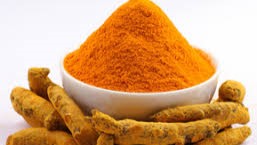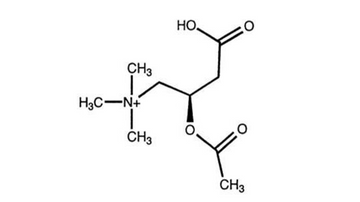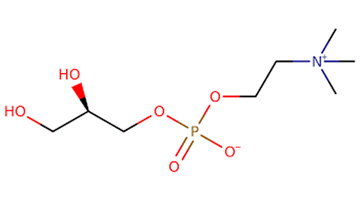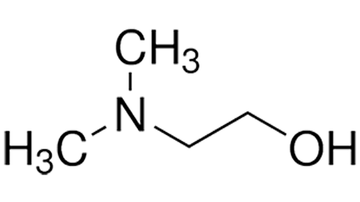Ingredients

St. John’s Wort (Hypericum perforatum)
St. John’s Wort for Stress Relief and Cognitive Health
St. John’s Wort (Hypericum perforatum) is a widely recognized herbal remedy traditionally used to manage mild to moderate depression. It contains active compounds such as hypericin and hyperforin, which may modulate key neurotransmitters in the brain, including serotonin, dopamine, and norepinephrine, all critical in mood regulation.
Key Benefits of St. John’s Wort
St. John’s Wort offers multiple benefits, particularly in supporting mental health. Its efficacy in treating mood disorders has made it a popular natural alternative to
conventional antidepressants. Below are the key benefits supported by clinical research:
Mood Support and Depression Relief
- Effective for mild to moderate depression: Studies confirm its efficacy in treating depression.
- Comparable to SSRIs: Clinical trials show it may be as effective as
selective serotonin reuptake inhibitors (SSRIs). - Natural alternative: It helps balance neurotransmitters like serotonin and dopamine, offering a popular
natural option for depression treatment.
Anti-Anxiety Effects of St. John’s Wort
- Reduces anxiety symptoms: Effective in addressing anxiety alongside depression.
- Anxiolytic properties: Helps improve mood by reducing anxiety.
- Dual benefit: Particularly useful for patients with both depression and anxiety.
Fewer Side Effects
- Fewer side effects: St. John’s Wort typically causes fewer adverse effects
compared to standard antidepressants. St John’s Wort is also linked to
lower risk of sexual dysfunction and weight gain compared to prescription
antidepressants.
Neuroprotection Properties of St. John’s Wort
- Neuroprotective effects: May help protect brain cells from oxidative
damage. - Supports cognitive health: Potential benefits for long-term brain function and preservation.
Scientific Evidence on St. John’s Wort
While St. John’s Wort offers notable benefits, its drug interactions require caution. It is available in capsules, tablets, and teas and is commonly used as an over-the-counter supplement for mental health support. However, patients should consult their physician to ensure its safe use alongside other medications.

Holy Basil (Ocimum sanctum)
Holy Basil for Stress Relief and Cognitive Health
Holy Basil (Ocimum sanctum), also known as Tulsi, is a revered herb in Ayurvedic medicine traditionally used for its adaptogenic, anti inflammatory, and neuroprotective properties. It contains bioactive compounds like eugenol, ursolic acid, and rosmarinic acid, which contribute to its therapeutic effects on stress, mood, and overall brain health.
Key Benefits of Holy Basil
Holy Basil offers a range of health benefits, particularly in helping the body adapt to stress and supporting cognitive function. Below are the key benefits supported by clinical research:
Stress Relief and Adaptogenic Effects of Holy Basil
- Adaptogen for stress: Helps regulate cortisol levels, reducing the physiological and psychological impacts of stress.
- Emotional resilience: Regular use may enhance mental clarity and emotional resilience in individuals dealing with chronic stress or burnout.
- Overall well-being: Improves general well-being and promotes better
stress management.
Anti-Anxiety and Mood Support
- Reduces anxiety: Has anxiolytic properties that help alleviate anxiety symptoms.
- Mood balance: Influences the HPA axis and modulates neurotransmitters like dopamine and serotonin, meaning Holy Basil works to improve mood stability.
Holy Basil for Cognitive Health and Focus
- Cognitive enhancement: Its neuroprotective and antioxidant properties protect against cognitive decline and enhance mental clarity.
- Sharpened focus: Reduces oxidative stress and brain inflammation, supporting long-term cognitive health and better focus.
Neuroprotection
- Protects neurons: Helps shield neurons from oxidative damage and inflammation, key factors in neurodegenerative diseases like Alzheimer’s and Parkinson’s.
- Healthy brain aging: Its anti-inflammatory properties support healthy brain aging and reduce inflammation.
Immune System Support from Holy Basil
- Boosts immunity: Known for its immune-boosting effects, Holy Basil reduces inflammation and supports the body’s natural defense mechanisms.
- Connection to mental well-being: By maintaining overall health, it also
contributes to better mental well-being and stress management.
Fewer Side Effects
- Well-tolerated: Holy Basil is generally well-tolerated and associated with few side effects.
- Versatile use: It can be taken as a supplement, tea, or tincture, and is widely
available as a natural remedy for stress relief, mood support, and cognitive
health.

Gotu Kola (Centella asiatica)
Gotu Kola for Cognitive Health and Memory Support
Gotu Kola (Centella asiatica) is a herb in Ayurvedic and traditional Chinese Medicine, valued for its adaptogenic, cognitive-enhancing, and neuroprotective properties.
Known as a powerful rejuvenating herb for the brain, Gotu Kola contains bioactive compounds like triterpenoids, flavonoids, and polyphenols, which contribute to its beneficial effects on mood, memory, and overall brain health.
Key Benefits of Gotu Kola
Gotu Kola provides a wide array of benefits for mental and cognitive health. Its long history in traditional medicine and modern research support its use for enhancing memory,
mood, and brain protection.
Cognitive Health and Memory Support from Gotu Kola
- Enhances memory: Studies show that Gotu Kola improves memory, learning, and cognitive performance.
- Supports brain circulation: Promotes healthy blood flow to the brain, improving cognitive function.
- Antioxidant protection: Encourages the production of antioxidant enzymes that protect brain cells from oxidative damage.
Mood Support and Anxiety Relief from Gotu Kola
- Reduces anxiety: Gotu Kola exhibits anxiolytic effects, helping reduce anxiety and stress symptoms.
- Balances cortisol and GABA: Modulates the GABA system and cortisol levels
to promote a sense of calm without drowsiness. - Natural anxiety management: This may serve as a natural
alternative for managing anxiety-related disorders.
Neuroprotection
Properties of Gotu Kola
- Protects neurons: Rich in antioxidants that defend against oxidative stress and inflammation, both linked to neurodegenerative diseases like Alzheimer’s and Parkinson’s.
- Preserves cognitive function: Helps prevent long-term neuronal damage and supports healthy brain aging.
Gotu Kola for Focus and Mental Clarity
- Improves focus: By enhancing circulation and reducing oxidative stress, Gotu Kola promotes mental clarity and focus.
- Brain fog relief: Commonly used as a natural remedy for brain fog and supports cognitive sharpness.
Skin and Wound Healing Support
- Promotes wound healing: Known for its ability to treat minor wounds, burns, and scars by regenerating skin tissues.
- Cell repair: The same regenerative properties that heal skin also support brain cell repair, contributing to its neuroprotective benefits.
Fewer Side Effects
- Well-tolerated: Gotu Kola is generally safe with few side effects when used in recommended doses.
- Versatile use: Available as capsules, powders, or tinctures, it is widely used for promoting mental health and cognitive function.

Passion Flower (Passiflora incarnata)
Passion Flower for Anxiety Relief and Sleep Support
Passion Flower(Passiflora incarnata) is a widely recognized herb traditionally used to treat anxiety, insomnia, and nervous disorders. It contains active compounds like flavonoids, alkaloids, and glycosides, which are thought to exert calming effects by modulating the brain's GABA (gamma-aminobutyric acid) system. GABA is a neurotransmitter that helps regulate mood, reduce neural excitability, and plays a crucial role in reducing anxiety and promoting relaxation.
Key Benefits of Passion Flower
Passion Flower offers multiple mental health benefits, particularly in reducing anxiety and supporting sleep. Below are the key benefits supported by clinical research:
Anxiety and Stress Relief
- Reduces anxiety: Clinical studies show that Passion Flower may reduce anxiety and improve overall mood.
- Calming effect: It increases GABA levels in the brain, promoting a calming effect and helping to reduce nervousness and stress.
- Natural treatment for anxiety:
This may be an effective treatment for generalized anxiety disorder (GAD) without causing sedation or dependency.
Insomnia and Sleep Support from Passion Flower
- Improves sleep quality: Commonly used to improve sleep and manage insomnia.
- Promotes relaxation: Supports the GABA system to ease restlessness, helping individuals sleep better without the grogginess associated with
conventional sleep aids.
Mood Support and Mild Depression Relief
- Balances the nervous system:
Passion Flower may help alleviate symptoms of mild depression by reducing excessive neural activity. - Emotional balance: Encourages relaxation and helps restore emotional equilibrium.
Neuroprotective Aspects of Passion Flower
- Protects brain cells: Recent research suggests that Passion Flower may have neuroprotective properties, shielding brain cells from oxidative stress and inflammation.
- Supports cognitive health: May contribute to long-term cognitive health and protect against neurodegenerative
diseases.
Fewer Side Effects
- Safer alternative: Passion Flower has fewer side effects compared to pharmaceutical anxiolytics or sedatives.
- Natural option: It is a safer alternative for managing anxiety, stress, and sleep disorders naturally.
- Varying forms of use: Passion Flower is typically consumed as teas, tinctures, capsules, or extracts and is widely available as a supplement for mental and emotional well-being.

Turmeric (Curcuma longa)
Turmeric for Cognitive Health and
Mood Support
Turmeric (Curcumalonga) is a popular spice known for its anti-inflammatory and antioxidant properties, largely due to its active compound, curcumin. It has been used for centuries in Ayurvedic medicine to treat various health conditions. Modern research has revealed turmeric’s neuroprotective potential, supporting
cognitive health and offering benefits for mood, anxiety, and neurodegenerative diseases.
Key Benefits of Turmeric
Turmeric offers a wide range of mental health and cognitive benefits. Below are the key benefits supported by research:
Turmeric for Mood Support and Depression Relief
- Increases BDNF levels: Curcumin boosts brain-derived neurotrophic factor (BDNF), crucial for brain function and mood regulation.
- Antidepressant effects: This may act as an antidepressant by modulating neurotransmitters like serotonin and dopamine.
- Adjunct therapy: Can enhance the effectiveness of conventional antidepressants when used alongside them.
Anti-Anxiety Effects of Turmeric
- Reduces anxiety symptoms: Curcumin’s anti-inflammatory and antioxidant properties help alleviate anxiety.
- Stress regulation: Influences the hypothalamic-pituitary-adrenal (HPA) axis, which plays a role in stress response, making it a potential natural treatment for anxiety-related disorders.
Neuroprotection
- Protects brain cells: Turmeric helps shield brain cells from oxidative damage and inflammation linked to neurodegenerative diseases like Alzheimer’s.
- Inhibits amyloid plaques: Curcumin has been shown to inhibit the buildup of amyloid plaques, a hallmark of Alzheimer’s disease.
Cognitive Health and Focus Benefits of Turmeric
- Improves cognitive function: Reduces brain inflammation and boosts antioxidant levels, promoting mental clarity.
- Supports memory and learning: Enhances memory and learning abilities, making it a valuable component of cognitive support regimens.
Anti-Inflammatory and Antioxidant Properties of Turmeric
- Reduces oxidative stress: Anti-inflammatory and antioxidant activities of
curcumin help reduce oxidative stress in the brain. - Protects neuronal health: These properties make turmeric beneficial for reducing brain inflammation and protecting neurons, which can help prevent cognitive decline and mood disorders.
Fewer Side Effects
- Well-tolerated: Unlike synthetic medications, turmeric is generally safe with few reported side effects when used in recommended doses.
- Enhancing bioavailability: Curcumin has low bioavailability but can be
paired with black pepper extract (piperine) to improve absorption. - Varying forms of use: Turmeric can be consumed as a natural spice or as a supplement, often combined with black pepper for enhanced bioavailability.

Ginger (Zingiber officinale)
Ginger for Mood Support and Cognitive Health
Ginger (Zingiber officinale) is a widely used spice and medicinal herb known for its
anti-inflammatory, antioxidant, and digestive properties. Beyond its traditional use for treating nausea and gastrointestinal issues, modern research highlights ginger’s neuroprotective and mood-enhancing potential. Its active compounds, such as gingerol and shogaol, offer a range of health benefits, including cognitive support, mood regulation, and anxiety reduction.
Key Benefits of Ginger
Ginger provides a variety of benefits for mental and cognitive health. Below are its key benefits supported by clinical research:
Mood Support and Anti-Anxiety Effects of Ginger
- Reduces anxiety: Ginger may help alleviate anxiety symptoms by modulating serotonin levels in the brain.
- Mood regulation: Its active compounds influence the serotonergic system, which is critical in mood regulation.
- Complementary treatment: Ginger may serve as a natural complement to treatments for anxiety-related disorders.
Cognitive Health and Focus
- Improves cognitive function: Ginger’s anti-inflammatory and antioxidant properties support brain health by reducing oxidative stress and neuroinflammation.
- Boosts memory and attention: Research suggests ginger can enhance memory, attention, and overall cognitive performance, making it beneficial for long-term brain health and focus.
Neuroprotection Properties of Ginger
- Protects neurons: Ginger’s neuroprotective effects help counteract oxidative stress and inflammation, which are key contributors to neurodegenerative diseases like Alzheimer’s.
- 6-gingerol benefits: The bioactive compound 6-gingerol may help protect neurons from damage and promote overall brain health.
Anti-Inflammatory and Antioxidant Properties of Ginger
- Reduces inflammation and oxidative
stress: Ginger’s potent anti-inflammatory and antioxidant effects benefit physical health and brain function. - Prevents cognitive decline: Ginger helps prevent cognitive decline and mood disorders by reducing chronic inflammation and oxidative stress.
Ginger for Digestive Health and Gut-Brain Axis
- Supports digestive health: Traditionally used to treat nausea and digestive issues, ginger plays a role in supporting the gut-brain axis.
- Enhances mental clarity: Ginger may indirectly improve mental clarity and emotional balance by promoting digestive health.
Fewer Side Effects
- Well-tolerated: Ginger is generally safe with few side effects when used appropriately.
- Various forms: It can be consumed in teas, capsules, or extracts and is widely available as a natural remedy for mental and physical health.

Chamomile (Matricaria recutita)
Chamomile for Anxiety Relief and Sleep Support
Chamomile (Matricaria recutita), commonly known as German chamomile, is one of the most popular medicinal herbs worldwide. It is known for its calming and anti-inflammatory properties and has been traditionally used to treat anxiety, insomnia, digestive disorders, and skin conditions. The active compounds in chamomile, such as apigenin, flavonoids, and sesquiterpenes, contribute to its mood-enhancing and neuroprotective effects.
Key Benefits of Chamomile
Chamomile offers a range of benefits, particularly for mental and digestive health. Below are its key benefits supported by clinical research:
Chamomile for Anxiety and Stress Relief
- Reduces anxiety: Chamomile is widely recognized for its anxiolytic effects, helping to relieve symptoms of generalized anxiety disorder (GAD).
- Promotes relaxation: The calming effects are due to its ability to bind to GABA receptors in the brain, producing a mild sedative effect without causing drowsiness.
- Natural stress management: Chamomile serves as a natural alternative for managing stress and anxiety.
Sleep Support from Chamomile
- Improves sleep quality: Chamomile is commonly used to treat insomnia and
improve overall sleep. - Reduces nervous tension: Its calming properties encourage relaxation, leading to restful sleep.
- Apigenin effects: The apigenin flavonoid binds to receptors in the brain that induce sleep, making it a popular remedy for those with sleep disturbances.
Chamomile for Mood Support and Mild Depression Relief
- Enhances mood: Chamomile’s calming properties help alleviate symptoms of mild depression.
- Emotional balance: Regular use can reduce feelings of sadness and irritability, contributing to overall emotional stability.
Neuroprotection and Cognitive Health
- Protects brain cells: Chamomile possesses antioxidant properties that help shield brain cells from oxidative damage.
- Prevents cognitive decline: Chamomile supports long-term cognitive health and may help prevent neurodegenerative diseases by reducing inflammation and oxidative stress.
Digestive Support and Gut Health from Chamomile
- Eases digestive issues: Traditionally used to treat indigestion and bloating, chamomile helps soothe the gut.
- Supports mental clarity: Since the gut-brain axis links digestive health to mood, chamomile’s ability to soothe the gut can also improve mental well-being.
Fewer Side Effects
- Well-tolerated: Chamomile is generally safe with almost no side effects.
- Versatile use: It can be consumed as tea, tincture, or supplement and is widely available as a remedy for stress relief, anxiety, and sleep support.

Ashwagandha (Withania somnifera)
Ashwagandha for Stress Reduction
and Cognitive Health
Ashwagandha (Withania somnifera), known as Indian ginseng or winter cherry, is a powerful adaptogen used in Ayurvedic medicine to help the body manage stress and improve overall vitality. The herb’s active compounds, including withanolides, alkaloids, and saponins, contribute to its therapeutic effects on stress reduction, mood, cognitive health, and neuroprotection.
Key Benefits of Ashwagandha
Ashwagandha offers a range of benefits, particularly for stress relief and cognitive health. Below are its key benefits supported by
research:
Stress and Anxiety Reduction from Ashwagandha
- Reduces stress: Ashwagandha is a well-known adaptogen that regulates cortisol levels and helps the body cope with physical and mental stress.
- Relieves anxiety: Clinical studies show it can significantly reduce anxiety and stress-related symptoms, making it effective for generalized anxiety disorder (GAD) and chronic stress.
- Balances the HPA axis: Helps regulate the hypothalamic-pituitary-adrenal (HPA) axis, which plays a key role in the body’s stress response.
Mood Support and Depression Relief
- Improves mood: Ashwagandha has antidepressant effects by modulating neurotransmitters like serotonin and dopamine.
- Emotional stability: Research suggests it may improve symptoms of mild to moderate depression, promoting emotional balance and mood regulation.
Cognitive Health and Focus Benefits of Ashwagandha
- Enhances cognitive function: Ashwagandha supports memory and focus by promoting antioxidant activity in the brain and reducing oxidative stress.
- Long-term brain health: Its neuroprotective effects may help prevent age-related cognitive decline.
- Improves focus: Ashwagandha indirectly enhances mental clarity and concentration by reducing stress and anxiety.
Neuroprotection
- Protects neurons: Ashwagandha helps reduce inflammation and oxidative damage in brain cells.
- Reduces risk of neurodegenerative diseases: Studies suggest it may lower the risk of diseases like Alzheimer’s and Parkinson’s by protecting neurons from degeneration.
Energy and Vitality from shwagandha
- Boosts physical energy: Traditionally used to enhance physical endurance and resilience, Ashwagandha helps the body cope with stress, supporting overall vitality.
- Eases fatigue: Ashwagandha is recommended for individuals experiencing fatigue or burnout due to its energizing yet calming properties.
Fewer Side Effects
- Well-tolerated: Ashwagandha has few side effects when taken in appropriate doses.
- Versatile use: It is available in capsule, powder, or extract form and is widely used as a supplement for stress relief, cognitive health, and overall wellness.

Ginkgo Biloba
Ginkgo Biloba for Cognitive Health and Neuroprotection
Ginkgo obiloba, also known as the maidenhair tree, is one of the oldest living tree species. Its leaves have been used in traditional medicine for centuries. Known for its antioxidant and neuroprotective properties, Ginkgo biloba has become a popular supplement for improving cognitive function, enhancing memory, and supporting brain health. Its active compounds, including flavonoids and terpenoids,
contribute to its ability to improve circulation and protect neurons from oxidative damage.
Key Benefits of Ginkgo Biloba
Ginkgo Biloba offers a range of benefits, particularly for cognitive health and circulation. Below are the key benefits supported by research:
Cognitive Health and Memory Enhancement from Ginkgo Biloba
- Enhances memory: Ginkgo Biloba is widely recognized for improving memory and cognitive function.
- Promotes blood flow: Research shows it may improve blood flow to the brain, resulting in better oxygen and nutrient delivery.
- Supports cognitive performance:
Particularly beneficial for individuals experiencing age-related cognitive decline, Ginkgo can enhance memory, learning, and overall cognitive function.
Neuroprotection
- Protects brain cells: Ginkgo Biloba’s antioxidant properties help protect brain cells from oxidative stress and inflammation.
- Prevents cognitive decline: Ginkgo may preserve cognitive function and slow the progression of neurodegenerative diseases like Alzheimer’s and Parkinson’s by reducing neuronal damage.
Mood Support and Anxiety Relief
- Reduces anxiety: Some studies suggest that Ginkgo Biloba may have anxiolytic effects, helping to alleviate symptoms of anxiety and stress.
- Supports emotional balance: Its ability to improve circulation and support neurotransmitter function may contribute to better mood regulation and emotional stability.
Ginkgo Biloba for Improved Circulation and Vascular Health
- Enhances circulation: Ginkgo Biloba has been shown to improve circulation by dilating blood vessels and reducing blood viscosity.
- Supports vascular health: Better circulation benefits brain health and promotes overall vascular health, potentially reducing the risk of
cardiovascular diseases. - Improves physical and mental
performance: Enhanced circulation can improve physical stamina and cognitive function.
Ginkgo Biloba for Cognitive Support in Dementia
- Supports dementia care: Ginkgo Biloba has been studied for its potential to improve cognitive function in people with dementia, particularly Alzheimer’s disease.
- Enhance cognitive function: While studies vary, some suggest that Ginkgo may enhance cognitive function and reduce symptoms in individuals with mild to moderate dementia.
Fewer Side Effects
- Well-tolerated: Ginkgo Biloba is generally safe with few reported side effects.
- Possible drug interactions: It may interact with medications like blood thinners, so consulting a healthcare provider before use is important.
- Versatile use: Ginkgo can be consumed in capsule, tablet, or extract form and is widely available as a supplement for cognitive support.

Bacopa (Bacopa Monnieri)
Bacopa Monnieri for Cognitive Enhancement and Neuroprotection
Bacopa monnieri, also known as Brahmi, is a staple herb in Ayurvedic medicine. It is traditionally used for its cognitive-enhancing and neuroprotective properties. It is widely recognized for improving memory, learning,
and concentration. The herb contains active compounds called bacosides, which support brain function, reduce oxidative stress, and enhance communication between neurons.
Key Benefits of Bacopa Monnieri
Bacopa Monnieri offers a variety of benefits for mental health and cognitive function. Below are its key benefits supported by clinical research:
Cognitive Health and Memory Enhancement
- Enhances memory: Bacopa Monnieri has been extensively studied for its memory-enhancing effects.
- Improves synaptic communication: It promotes neuron repair and improves
communication between neurons. - Cognitive support: Bacopa is particularly beneficial for individuals experiencing age-related cognitive decline and is commonly used as a natural nootropic to boost brain performance.
Neuroprotection Properties of Bacopa Monnieri
- Protects brain cells: Bacopa Monnieri has strong antioxidant properties that help protect brain cells from oxidative stress and inflammation, two major contributors to neurodegenerative diseases.
- Promotes neurogenesis:
Bacosides, the active components of Bacopa, play a key role in repairing damaged neurons and promoting neurogenesis, supporting long-term brain health.
Anxiety and Stress Relief from Bacopa Monnieri
- Reduces stress: Bacopa is an adaptogen that helps manage stress by reducing cortisol levels and balancing neurotransmitters like serotonin and dopamine.
- Calming effects: Studies show Bacopa can reduce anxiety symptoms and improve mood, making it beneficial for those experiencing chronic stress or anxiety-related disorders.
Bacopa Monnieri for Focus and Mental Clarity
- Enhances focus: Bacopa Monnieri promotes neurotransmitter activity, improving concentration and mental stamina.
- Reduces brain fog: Bacopa enhances mental clarity, making it ideal for individuals in high-pressure or mentally demanding situations.
ADHD Support from Bacopa Monnieri
- ADHD management: Emerging research suggests that Bacopa Monnieri may benefit individuals with attention-deficit/hyperactivity disorder (ADHD).
- Improves attention and impulse control: Some studies have found that Bacopa may improve cognitive function in children with ADHD, making it a promising natural alternative to conventional treatments.
Fewer Side Effects
- Well-tolerated: Bacopa Monnieri is generally safe with few side effects when used in recommended doses. However, in some cases, mild gastrointestinal discomfort may occur.
- Versatile use: It is available in capsule, powder, or extract form and is widely used as a supplement for cognitive health and stress management.

Rhodiola (Rhodiola Rosea)
Rhodiola Rosea for Stress Management and Cognitive Health
Rhodiola rosea is an adaptogenic herb traditionally used in European and Asian medicine to enhance resilience against physical and mental stress. It is known for its ability to improve energy levels, reduce fatigue, and enhance cognitive function. The active compounds in Rhodiola, including rosavin and salidroside, contribute to its stress-relieving, mood-enhancing, and neuroprotective effects.
Key Benefits of Rhodiola Rosea
Rhodiola Rosea offers multiple benefits, especially for stress management, energy levels, and cognitive enhancement. Below are its key benefits supported by research:
Stress Reduction and Adaptogenic Effects of Rhodiola Rosea
- Reduces stress: Rhodiola is renowned for its adaptogenic properties, helping the body cope with stress by balancing cortisol levels.
- Emotional stability: Studies show that Rhodiola can reduce symptoms of stress and fatigue, promoting a sense of well-being and emotional balance.
- Helps with burnout: Commonly used to support individuals dealing with chronic stress and burnout, it is valuable for long-term stress management.
Energy and Fatigue Reduction
- Combats fatigue: Rhodiola has been studied for its ability to reduce fatigue, particularly in stressful situations.
- Enhances stamina: It supports physical and mental stamina by aiding the body’s energy
production pathways, making it beneficial for demanding tasks or recovery from physical exhaustion.
Rhodiola Rosea for Improved Cognitive Health and Focus
- Improves mental clarity: Research suggests that Rhodiola can enhance cognitive function by improving clarity, focus, and memory.
- Boosts concentration: It increases the capacity for mental work during periods of intense stress or fatigue, making it a popular nootropic for improving concentration and cognitive performance.
Mood Support and Anxiety Relief from Rhodiola Rosea
- Alleviates anxiety: Rhodiola has demonstrated antidepressant and anxiolytic effects by influencing serotonin and dopamine systems, which are key to mood regulation.
- Emotional balance: Clinical studies show that Rhodiola can reduce symptoms of mild to moderate depression and anxiety, promoting emotional well-being.
Neuroprotection
- Protects brain cells: Rhodiola possesses antioxidant and anti-inflammatory properties that help protect brain cells from oxidative damage and inflammation.
- Reduces Deurodegenerative risk: These neuroprotective effects may support long-term brain health and lower the risk of diseases like Alzheimer’s and Parkinson’s.
Fewer Side Effects
- Well-tolerated: Rhodiola is generally safe with few side effects.
- Versatile use: It is commonly consumed in capsule or extract form and is widely available as a supplement for stress relief, cognitive enhancement, and overall vitality.

Saffron (Crocus Sativus)
Saffron for Mood Support and Cognitive Health
Saffron, derived from the Crocus sativus flower, has been used for centuries in traditional medicine for its mood-enhancing, antioxidant, and neuroprotective properties. The bioactive compounds in saffron, including crocin, crocetin, and safranal, significantly affect mood, cognitive function, and neuroprotection, making it a valuable herb for supporting mental health and cognitive performance.
Key Benefits of Saffron
Saffron offers a variety of benefits for mental health and cognitive enhancement. Below are its key benefits supported by research:
Mood Support and Depression Relief
- Antidepressant effects: Saffron has been extensively studied for its ability to increase serotonin levels, a key neurotransmitter involved in mood regulation.
- Comparable to antidepressants: Clinical studies show that saffron is as effective as standard antidepressant medications for treating mild to moderate depression, with fewer side effects.
Anti-Anxiety Effects of Saffron
- Reduces anxiety: Saffron’s calming properties extend to anxiety relief by modulating neurotransmitters such as serotonin and dopamine.
- Natural alternative: It may help alleviate symptoms of anxiety and stress, providing a natural option for managing mood disorders.
Cognitive Health and Memory Enhancement
- Improves cognitive function: Saffron’s neuroprotective effects and its antioxidant properties help reduce oxidative stress and inflammation in the brain.
- Enhances mental clarity: These effects can improve focus, memory, and overall cognitive performance, potentially protecting against age-related cognitive decline and neurodegenerative diseases like Alzheimer’s.
Saffron for ADHD Symptom Reduction
- Manages ADHD: New research suggests that saffron may benefit individuals with ADHD (Attention-Deficit/Hyperactivity Disorder.
- Comparable to medications: Some studies indicate that saffron may be as effective as conventional ADHD medications like methylphenidate, improving attention, reducing hyperactivity, and enhancing cognitive performance naturally.
Neuroprotective Properties of Saffron
- Protects brain cells: Saffron’s potent antioxidants, including crocin and safranal, which may help protect brain cells from oxidative damage and inflammation.
- Alzheimer’s prevention: Saffron may inhibit the aggregation of beta-amyloid plaques, a hallmark of Alzheimer’s disease, reducing the risk of neurodegenerative diseases and supporting long-term brain health.
Mood Enhancement and Emotional Balance
- Enhances mood: In addition to its antidepressant effects, saffron is often used to promote emotional stability and well-being.
- Emotional balance: By influencing neurotransmitter systems, saffron supports mood enhancement and mental well-being.
Fewer Side Effects
- Well-tolerated: Saffron is generally safe and has fewer side effects compared to conventional antidepressants and ADHD medications.
- Versatile use: It is available as a supplement in capsule or extract form and is widely used to support mental health, cognitive function,
and emotional balance.

Sage (Salvia officinalis)
Sage for Cognitive Health and Mood
Support
Sage (Salvia officinalis) is a well-known culinary and medicinal herb traditionally used for its anti-inflammatory, antioxidant, and cognitive-enhancing properties. Sage contains bioactive compounds such as rosmarinic acid, flavonoids, and terpenoids, which have been shown to support brain health, improve memory, and reduce symptoms of anxiety and mood disorders. Sage is also recognized for its neuroprotective and anti-aging effects on cognitive function.
Key Benefits of Sage
Sage offers a variety of benefits for cognitive health and emotional well-being. Below are its key benefits supported by research:
Cognitive Health and Memory Enhancement
- Enhances memory: Sage has been studied for its ability to improve memory, particularly in older adults.
- Supports cognitive function: Sage improves cholinergic activity by inhibiting the enzyme acetylcholinesterase, which breaks down acetylcholine—a neurotransmitter critical for memory and learning.
- Protects against cognitive decline: These effects make sage beneficial for supporting cognitive function and may help protect against neurodegenerative diseases like Alzheimer’s.
Sage for Mood Support and Anxiety Relief
- Reduces anxiety: Sage has demonstrated anxiolytic properties that help reduce
symptoms of anxiety and promote emotional balance. - Improves mood: Its active compounds modulate neurotransmitter systems, particularly serotonin and GABA, promoting calmness and reducing nervous tension.
- Enhances emotional stability: Some studies indicate that sage can reduce irritability and enhance emotional stability.
Neuroprotection
- Protects brain cells: Sage's antioxidant and anti inflammatory properties help protect brain cells from oxidative stress and inflammation, two key contributors to neurodegenerative diseases.
- Delays cognitive decline: By neutralizing free radicals and reducing brain inflammation, sage supports long-term brain health and may delay age-related cognitive decline.
Improved Focus and Mental Clarity from Sage
- Boosts focus: Sage has been found to enhance focus and mental clarity by improving blood flow to the brain and boosting neurotransmitter activity.
- Supports mental stamina: Sage's effects on mental stamina and concentration make it valuable, particularly in high-stress or cognitively demanding situations.
Sage for Cognitive Support in Alzheimer’s Disease
- Alzheimer’s support: Sage has shown promise in improving cognitive function in patients with mild to moderate Alzheimer’s disease.
- Enhances acetylcholine levels: By increasing acetylcholine and reducing
neuroinflammation, sage may help mitigate cognitive symptoms associated with Alzheimer’s and improve quality of life.
Fewer Side Effects:
- Well-tolerated: Sage is generally well-tolerated with few side effects when used in recommended doses.
- Versatile use: It is commonly consumed as a supplement in capsule, tincture, or tea form and is widely available for its cognitive and mood-enhancing benefits.

Ginseng(Panax ginseng)
Ginseng for Cognitive Health and
Mood Support
Ginseng (Panax ginseng), also known as Korean or Asian ginseng, is a popular herbal remedy in traditional Chinese and Korean medicine. Ginseng is widely used for its adaptogenic, anti inflammatory, and neuroprotective properties. The active compounds in ginseng, known as ginsenosides, enhance cognitive function, improve mood, and support overall brain health.
Key Benefits of Ginseng
Ginseng offers a variety of benefits for cognitive health, mood support, and physical vitality. Below are its key benefits supported by research:
Cognitive Health and Memory Enhancement from Ginseng
- Enhances cognitive performance: Ginseng improves attention, memory, and mental processing speed.
- Promotes neuron growth: Ginsenosides enhance synaptic plasticity and promote the growth of new neurons, improving memory and learning.
Supports age-related cognitive function: Ginseng supports cognitive health in individuals experiencing age-related decline.
Mood Support and Anti-Anxiety Effects of Ginseng
- Improves emotional balance: Ginseng regulates neurotransmitters like serotonin and dopamine, enhancing mood and emotional well-being.
- Reduces anxiety and depression: Studies show that ginseng can alleviate symptoms of anxiety, depression, and stress, making it a natural adaptogen for improving mental health.
Neuroprotection
- Protects brain cells: Ginseng’s antioxidant and anti-inflammatory properties reduce oxidative stress and inflammation, protecting neurons from damage.
- Prevents neurodegenerative diseases: These effects support long-term brain health and may prevent diseases like Alzheimer’s and Parkinson’s.
Energy and Fatigue Reduction
- Boosts energy levels: Ginseng combats physical and mental fatigue by improving stamina and physical performance.
- Adaptogenic support: It is especially beneficial for individuals under high mental or physical stress, helping the body adapt to challenging
conditions.
Ginseng for Improved Focus and Mental Clarity
- Enhances focus: Ginseng supports neurotransmitter activity and improves blood flow to the brain, enhancing focus and mental clarity.
- Supports concentration: It is valuable for improving cognitive function during tasks requiring sustained mental effort and concentration, particularly in stressful situations. Support for ADHD
- ADHD management: Some research suggests that ginseng may improve attention, impulse control, and cognitive function in children with ADHD, making it a promising natural supplement for managing ADHD symptoms.
Fewer Side Effects
- Well-tolerated: Ginseng is generally safe with few side effects when used in recommended doses.
- Versatile use: It is available in capsule, powder, or extract form and is widely used to enhance cognitive function, reduce stress, and support overall vitality.

Maca(Lepidium mayenii)
Maca for Energy, Mood, and Hormone Balance
Maca (Lepidium mayenii), also known as Peruvian ginseng, is a root vegetable native to the Andes mountains in Peru. Traditionally used for centuries to boost energy, enhance stamina, and support fertility and sexual health, maca’s active compounds, including macamides and macaenes, are known for their adaptogenic
properties, helping the body cope with stress and improve overall vitality. Maca has also been studied for its potential benefits on mood, cognitive function, and hormone balance.
Key Benefits of Maca
Maca offers a variety of benefits for physical vitality, mood enhancement, and hormone balance. Below are its key benefits supported by research:
Maca for Energy and Stamina Enhancement
- Increases energy: Maca is widely known for boosting energy and physical stamina.
- Improves endurance: Studies suggest that regular maca consumption can improve endurance and reduce fatigue, making it popular for athletes and individuals seeking enhanced physical performance.
- Adaptogenic support: Maca’s adaptogenic properties help the body manage physical and mental stress, enhancing overall vitality.
Mood Support and Anxiety Relief
- Balances hormones: Maca has mood-enhancing effects by balancing hormone levels, particularly in women experiencing menopause or hormonal fluctuations.
- Reduces anxiety and stress: Some studies show that maca can reduce symptoms of anxiety, depression, and stress by regulating the hypothalamic-pituitary-adrenal (HPA) axis, offering a natural alternative for emotional well-being.
Maca for Cognitive Health and Focus
- Enhances cognitive function: Emerging research suggests that maca’s neuroprotective effects can improve cognitive function.
- Improves focus and memory: Its antioxidant properties protect the brain from oxidative stress, improving focus, memory, and mental clarity. By supporting energy levels and reducing mental fatigue, maca promotes sharper thinking and sustained concentration.
Hormone Balance and Sexual Health Benefits of Maca
- Supports sexual health: Maca is traditionally used to support hormone balance and sexual health in both men and women.
- Improves libido and fertility: Studies indicate that maca may help improve libido and fertility by modulating hormone levels. In women, it is used to alleviate menopause
symptoms, including hot flashes, mood swings, and reduced libido, without affecting estrogen levels.
Adaptogenic Properties of Maca
- Manages stress: Maca is an adaptogen that helps the body manage stress more effectively, supporting both physical and mental resilience.
- Reduces fatigue: Its ability to balance hormones, reduce fatigue, and enhance vitality makes maca valuable for managing stress-related conditions.
Fewer Side Effects
- Well-tolerated: Maca is generally safe, with few reported side effects when used in recommended doses.
- Versatile use: It is available in powder, capsule, or extract form and is commonly consumed for its energy-boosting, mood-enhancing, and hormone-balancing effects.

Damiana(Turnera aphrodisiaca)
Damiana for Mood Support and Sexual Health
Damiana (Turnera aphrodisiaca) is a shrub native to Central and South America. It has traditionally been used for its aphrodisiac, mood-enhancing, and stimulant properties. For centuries, it has been used in folk medicine to support sexual health, improve mood, and alleviate anxiety. The active compounds in damiana, such as flavonoids, terpenoids, and caffeine-like alkaloids, stimulate and balance the nervous system.
Key Benefits of Damiana
Damiana offers a variety of benefits for mood support, sexual health, and energy enhancement. Below are its key benefits supported by research:
Mood Support and Anxiety Relief from Damiana
- Reduces anxiety: Damiana is commonly used as a natural remedy for anxiety and mood disorders.
- Calming and stimulating effects: Its mild sedative properties reduce nervousness, while its stimulating effects promote well-being.
- Supports serotonin levels: Some studies suggest that damiana may enhance serotonin levels, making it useful for managing symptoms of anxiety and mild depression.
Damiana for Aphrodisiac and Sexual Health Support
- Enhances libido: Damiana is best known for its aphrodisiac effects, traditionally used to boost sexual desire and performance.
- Improves blood flow: Research indicates that damiana may increase blood flow and sensitivity in sexual organs, enhancing libido in both men and women.
- Stimulates sexual well-being: Its effects on the nervous system contribute to a heightened sense of sexual well-being and intimacy.
Energy and Stamina Enhancement from Damiana
- Increases energy: Damiana’s mild stimulant properties can help boost energy levels and reduce fatigue.
- Improves stamina: Its caffeine-like alkaloids stimulate the central nervous system, improving physical and mental stamina, especially during periods of stress or fatigue.
Hormonal Balance and Reproductive Health
- Supports hormonal balance: Damiana has been traditionally used to support hormone regulation, particularly in women.
- Alleviates PMS and menopause
symptoms: It may help relieve symptoms of premenstrual syndrome (PMS) and
menopause, such as mood swings, irritability, and reduced libido while supporting reproductive health.
Damiana for Neuroprotection and Cognitive Support
- Protects brain cells: Damiana contains antioxidants that help protect brain cells from oxidative stress, which may contribute to cognitive decline.
- Supports mental clarity: Though research is limited, some studies suggest that damiana may support cognitive function, focus, and mental clarity, making it beneficial for reducing mental fatigue.
Fewer Side Effects
- Well-tolerated: Damiana is generally well-tolerated, with few reported side effects when used in recommended doses.
- Versatile use: It is commonly available in capsule, tea, or extract form and is widely used as a natural remedy for mood support, sexual
health, and energy enhancement.

Magnolia(Magnolia officinalis)
Magnolia for Anxiety Relief and Cognitive Health
Magnolia (Magnolia officinalis) is a tree native to China. Its bark has been used for centuries in traditional Chinese medicine to treat anxiety, stress, and sleep disorders. The primary bioactive compounds in magnolia bark, honokiol, and magnolol, are known for their powerful anti-anxiety, anti-inflammatory, and neuroprotective properties. Magnolia bark has gained attention for its ability to promote relaxation, improve mood, and protect brain health.
Key Benefits of Magnolia
Magnolia offers a variety of benefits for mental well-being and cognitive function. Below are its key benefits supported by research:
Magnolia for Anxiety and Stress Relief
- Reduces anxiety: Magnolia bark is widely recognized for its potent anxiolytic properties, helping to reduce symptoms of anxiety and stress.
- Calming effects without drowsiness: Honokiol, a key active compound, modulates GABA receptors in the brain, promoting relaxation without causing drowsiness.
- Stress management: Magnolia bark can lower cortisol levels, the hormone associated with stress, effectively managing chronic stress and anxiety.
Mood Enhancement and Depression Relief
- Regulates neurotransmitters: Magnolia bark supports mood by regulating neurotransmitters like serotonin and dopamine, helping to alleviate symptoms of depression.
- Promotes emotional balance: Its ability to reduce stress and anxiety improves mood and mental well-being.
Magnolia for Sleep Support and Insomnia Relief
- Improves sleep quality: Magnolia bark promotes relaxation and reduces nervous tension, helping individuals fall asleep more easily and stay asleep longer.
- Beneficial for sleep disorders: By modulating GABA activity, magnolia is useful for those with anxiety-related sleep disorders.
Neuroprotective Properties of Magnolia
- Protects brain cells: Magnolia bark has strong neuroprotective properties due to its antioxidant and anti-inflammatory effects.
- Reduces risk of neurodegenerative diseases: Honokiol has been shown to protect brain cells from oxidative stress and reduce inflammation, which are key contributors to diseases like Alzheimer’s. Thus, it supports long-term brain health.
Magnolia for Cognitive Function and Mental Clarity
- Enhances cognitive function: The calming and neuroprotective effects of magnolia bark reduce mental fatigue and improve focus.
- Improves mental clarity: By lowering stress levels and supporting neurotransmitter balance, magnolia can enhance mental clarity and cognitive performance, particularly in high-pressure situations.
Fewer Side Effects
- Well-tolerated: Magnolia bark is generally well-tolerated, with few side effects when used in recommended doses.
- Versatile use: It is commonly available in capsule, tincture, or tea form and is widely used for its calming and neuroprotective benefits.

Sceletium tortuosum
Sceletium tortuosum for Mood Support and Cognitive Health
Sceletium tortuosum, commonly known as Kanna, is a succulent plant native to South Africa. Indigenous peoples have traditionally used it for its mood-enhancing, calming, and cognitive-boosting properties. The primary active compounds in Kanna, including mesembrine and mesembrenone, are believed to significantly modulate serotonin, making it valuable for supporting mental health, mood regulation, and stress relief.
Key Benefits of Sceletium tortuosum (Kanna)
Kanna offers a range of benefits for mental well-being, cognitive function, and stress management. Below are its key benefits supported by research:
Mood Support and Depression Relief Benefits of Sceletium Tortuosum
- Antidepressant effects: Kanna is known for its potent antidepressant effects due to its ability to inhibit serotonin reuptake, thereby increasing
serotonin levels in the brain. - Natural alternative to SSRIs: Its mechanism is similar to selective serotonin reuptake inhibitors (SSRIs), but Kanna is believed to have fewer side effects. It has been traditionally used to
alleviate symptoms of depression and emotional imbalance, making it popular for mood enhancement.
Sceletium Tortuosum for Anxiety and Stress Relief
- Reduces anxiety: Kanna’s anxiolytic properties make it a valuable herb for reducing anxiety and stress.
- Non-sedative calming: By modulating serotonin levels, Kanna helps calm the mind and reduce nervousness without causing sedation. Studies suggest that it may benefit individuals dealing with chronic stress or anxiety-related disorders.
Cognitive Health and Mental Clarity
- Enhances cognitive function: Kanna improves cognitive function by reducing stress and anxiety, which can impair focus and cognitive performance.
- Supports memory and concentration: Some research indicates that Kanna may help
improve memory and concentration, making it a useful supplement for enhancing mental performance and reducing brain fog.
Neuroprotection Benefits of Sceletium Tortuosum
- Protects brain cells: Kanna contains antioxidant compounds that help protect brain cells from oxidative stress and inflammation, both contributors to neurodegenerative diseases.
- Supports long-term brain health: Its neuroprotective effects and serotonin modulation abilities make Kanna a potential tool for supporting long-term brain health.
Support for Addiction and Cravings
- Curbs cravings: Kanna has been traditionally used to help curb cravings and manage addictive behaviors, particularly for substances like tobacco.
- Manages withdrawal symptoms: Some studies suggest that Kanna may help reduce withdrawal symptoms
and support emotional balance during recovery, making it a promising natural aid for managing cravings and stress-related behaviors.
Fewer Side Effects
- Well-tolerated: Kanna is generally well-tolerated and is known for having fewer side effects compared to conventional antidepressants and anxiolytics.
- Versatile use: It can be consumed in capsule, powder, or extract form and is widely available for its mood-enhancing, stress-relieving,
and cognitive-supporting effects.

Indian Trumpet Tree (Oroxylum indicum)
Indian Trumpet Tree for Cognitive
Health and Immune Support
The Indian Trumpet Tree, scientifically known as Oroxylum indicum, is native to the Indian subcontinent and Southeast Asia. It has been used for centuries in Ayurveda and traditional medicine for its medicinal properties, including anti-inflammatory, antioxidant, and neuroprotective effects. Oroxylum indicum is rich in flavonoids, alkaloids, and other bioactive compounds that contribute to its therapeutic benefits for cognitive health, mood regulation, and immune support.
Key Benefits of Indian Trumpet Tree (Oroxylum indicum)
Oroxylum indicum offers a variety of benefits for brain health, mood support, and immune function. Below are its key benefits supported by research:
Neuroprotection and Cognitive Health
- Protects brain cells: Oroxylum indicum is known for its neuroprotective properties,
helping to protect brain cells from oxidative stress and inflammation. - Prevents neuronal damage: The flavonoids in Oroxylum indicum, such as baicalein and chrysin, have been shown to prevent neuronal damage and enhance cognitive function.
- Supports memory and learning: This herb promotes brain health, reduces the risk of neurodegenerative diseases, and improves memory and learning.
Indian Trumpet Tree for Anti-Anxiety and Mood Support
- Reduces anxiety: Traditional uses of Oroxylum indicum include its application as an anti-anxiety herb, helping to modulate neurotransmitters such as serotonin and dopamine.
- Improves mood: These effects may help reduce symptoms of anxiety and depression,
promoting emotional balance and well-being. Anti-Inflammatory and Antioxidant Properties of Indian Trumpet Tree
- Rich in antioxidants: Oroxylum
indicum contains powerful antioxidants that help combat oxidative stress, a key contributor to aging and chronic conditions. - Reduces inflammation: Its anti-inflammatory properties benefit both the body and brain, supporting long-term cognitive health and overall well-being.
Immune Support and Adaptogenic Effects of Indian Trumpet Tree
- Boosts immune function: Oroxylum indicum is known for its immune-boosting properties, which help the body fight off infections and
support general health. - Adaptogenic benefits: As an adaptogen, it helps the body cope with physical and mental stress by regulating cortisol levels, improving resilience, and reducing fatigue.
Potential Anticancer Effects of Indian Trumpet Tree
- Cancer research: Some studies suggest that Oroxylum indicum may have anticancer properties due to its rich flavonoid content.
- Inhibits cancer cell growth: Its active compounds may inhibit the growth of certain cancer cells, although further research is needed to understand these effects fully.
Fewer Side Effects
- Well-tolerated: Oroxylum indicum is generally considered safe and well-tolerated when used in recommended doses.
- Versatile use: It is available as a supplement in powder, extract, or capsule form and is traditionally used for its cognitive-enhancing, anti-inflammatory, and immune-boosting effects.

kucha (Camellia assamica)
Kucha for Energy, Focus, and Cognitive Support
Methylliberine, a natural alkaloid found in the kucha tea leaf (Camellia assamica var. kucha), has gained popularity in the health and wellness industry for its ability to enhance energy, mental focus, and mood without the jittery effects typically associated with stimulants like caffeine. Methylliberine influences key
neurotransmitters such as dopamine and adenosine, which regulate mood, energy,
and motivation.
Key Benefits of Methylliberine (Dynamine)
Methylliberine offers a variety of benefits for energy, focus, and mood enhancement. Below are its key benefits supported by research:
Energy and Focus Boost
- Sustained energy: Methylliberine provides a quick and sustained energy boost, making it a popular ingredient in pre-workout supplements and nootropic formulas.
- Smooth, prolonged effect: Unlike caffeine, which can cause jitteriness or a crash, methylliberine delivers smoother, long-lasting energy, improving alertness and mental focus without overstimulation.
- Enhanced motivation and concentration: Methylliberine increases motivation, energy, and concentration by activating dopamine
receptors and inhibiting adenosine.
Mood Enhancement and Cognitive Support from Kucha
- Improves mood: Methylliberine enhances dopamine levels in the brain, a key neurotransmitter involved in mood regulation, motivation, and cognitive function.
- Elevates mental clarity: By boosting dopamine activity, methylliberine can improve mental clarity, elevate mood, and reduce feelings of mental fatigue, making it ideal for those seeking better productivity and cognitive performance.
Nootropic and Neuroprotective Effects of Kucha
- Enhances cognitive performance: Methylliberine is often used as a nootropic to improve mental clarity, memory, and learning.
- Neuroprotective properties: Early research suggests that methylliberine may have neuroprotective effects, potentially reducing oxidative stress in the brain supporting cognitive health.
Fast-Acting and Long-Lasting
- Quick onset: Methylliberine’s effects are felt within minutes of ingestion, and its benefits last for several hours without the common crash associated with other stimulants.
- Sustained performance: It is beneficial in energy-boosting and focus-enhancing supplements, providing prolonged performance without overstimulation or burnout.
Fewer Side Effects
- Minimal side effects: Methylliberine is known for its minimal side effects compared to traditional stimulants.
- No jitters or crashes: It doesn’t raise heart rate or blood pressure as significantly as caffeine, making it a safer option for those sensitive to
stimulants. It delivers an energy boost without jitters or crashes.

Mucuna Pruriens
Mucuna Pruriens for Dopamine Support and Cognitive Health
Mucuna Pruriens, also known as velvet bean, is a leguminous plant native to tropical regions. It is widely recognized for its high content of L-DOPA, a direct precursor to dopamine. For centuries, it has been used in traditional Ayurvedic medicine to improve mood, boost energy, support cognitive function, and promote sexual health. Mucuna pruriens is known for its role in neuroprotection and dopamine regulation and its potential benefits for conditions like Parkinson’s disease.
Key Benefits of Mucuna Pruriens
Mucuna Pruriens offers a variety of benefits for mood regulation, cognitive function, and overall vitality. Below are its key benefits supported by research:
Dopamine Production and Mood Enhancement from Mucuna Pruriens
- Boosts dopamine: Mucuna Pruriens is one of the richest natural sources of L-DOPA, which is converted into dopamine in the brain.
- Improves mood: By boosting dopamine levels, Mucuna Pruriens helps improve mood, reduce symptoms of depression, and enhance emotional well-being.
- Supports mental health: Its dopamine-boosting effects make it valuable for supporting mental health and combating stress.
Neuroprotection and Cognitive Support of Mucuna Pruriens
- Protects neurons: L-DOPA in Mucuna Pruriens has been studied for its neuroprotective properties, particularly in neurodegenerative diseases like Parkinson’s.
- Prevents cognitive decline: Research suggests that Mucuna Pruriens may protect dopaminergic neurons from oxidative stress and degeneration, supporting cognitive health and delaying cognitive decline.
Mucuna Pruriens for Parkinson’s Disease Management
- Replenishes dopamine: Mucuna Pruriens is often used in managing Parkinson’s disease due to its high L-DOPA content, which helps replenish dopamine levels in individuals
with dopamine deficiency. - Improves motor function: Studies show Mucuna Pruriens may be as effective as synthetic L-DOPA in improving motor function in Parkinson’s patients, with fewer side effects and longer-lasting benefits.
Energy and Stamina
- Boosts energy: Mucuna Pruriens is known for its adaptogenic properties, helping the body manage stress and improve energy levels.
- Enhances physical performance: It has been traditionally used to boost stamina, reduce fatigue, and improve motivation and vitality, making it popular for physical and mental performance.
Sexual Health and Libido Benefits of Mucuna Pruriens
- Enhances libido: Mucuna Pruriens has been used as an aphrodisiac to enhance libido and improve fertility in both men and women.
- Improves reproductive health: It is believed to increase testosterone levels, improve sperm quality, and reduce stress-related sexual dysfunction.
Fewer Side Effects
- Well-tolerated: Mucuna Pruriens is generally well-tolerated when taken in recommended doses.
- Consult with a healthcare provider: Individuals taking synthetic L-DOPA or other
dopamine-related medications should consult a healthcare provider before using Mucuna Pruriens. It is available in capsule, powder, or extract form and is commonly used for mood enhancement, neuroprotection, and energizing effects.

Forskolin(Coleus Forskolin)
Forskolin for Fat Loss, Energy, and
Cognitive Health
Forskolin is a natural compound derived from the roots of the Indian Coleus plant (Coleus forskohlii). It has been used for centuries in Ayurvedic medicine for various health benefits, including its ability to support weight loss, boost energy, and enhance heart and respiratory health. Forskolin is known for activating adenylate cyclase, which increases levels of cyclic AMP (cAMP) in cells, promoting a wide range of physiological functions such as metabolism, fat breakdown, and cognitive health.
Key Benefits of Forskolin (Coleus forskohlii)
Forskolin offers a variety of benefits for weight management, energy enhancement, and cognitive support. Below are its key benefits supported by research:
Forskolin for Fat Loss and Metabolism Support
- Promotes fat breakdown: Forskolin is widely used for its fat-burning properties. It increases levels of cAMP, which stimulates fat breakdown and enhances metabolism.
- Supports healthy weight loss: Some studies suggest that forskolin can enhance lipolysis (the breakdown of fat) while preserving lean muscle mass, making it a popular ingredient in weight management supplements.
Energy and Stamina
- Boosts energy levels: Forskolin increases cellular energy production by boosting cAMP levels, enhancing the activity of enzymes involved in energy metabolism.
- Improves physical performance: This may result in improved stamina, endurance, and overall physical performance, making forskolin a valuable supplement for increasing energy levels naturally.
Forskolin for Cognitive Health and Neuroprotection
- Enhances cognitive function: Forskolin’s ability to increase cAMP levels has been linked to improved cognitive function, including memory formation and neurotransmitter release.
- Supports neuroplasticity: By enhancing cAMP signaling, forskolin may help protect neurons from oxidative damage and improve learning and memory, supporting overall cognitive health.
Heart Health and Blood Pressure Regulation
- Improves heart health: Forskolin has traditionally been used to support cardiovascular health by improving heart function and regulating blood pressure.
- Reduces blood pressure: By activating adenylate cyclase, forskolin helps dilate blood vessels, improve blood flow, and lower blood pressure, which may benefit individuals with hypertension and heart conditions.
Respiratory Health Support from Forskolin
- Improves respiratory function: Forskolin supports respiratory health by increasing cAMP levels, relaxing the muscles around the bronchial tubes, and promoting better airflow.
- Reduces asthma symptoms: Forskolin’s bronchodilator effects benefit individuals with asthma and chronic obstructive pulmonary disease (COPD), improving breathing and reducing symptoms.
Fewer Side Effects
- Well-tolerated: Forskolin is generally well-tolerated when used appropriately, though it may lower blood pressure in some individuals.
- Versatile use: It is available in capsule, powder, or extract form and is commonly used for weight management, energy enhancement, and cognitive health.

Lion’s Mane Mushroom (Hericium erinaceus)
Lion’s Mane Mushroom for Cognitive
Health and Neuroprotection
Lion’s Mane Mushroom (Hericium erinaceus) is a medicinal mushroom known for its neuroprotective, cognitive-enhancing, and immune-boosting properties. Traditionally used in East Asian medicine to promote brain health and overall vitality, Lion’s Mane contains bioactive compounds, such as hericenones and erinacines, which stimulate nerve growth factor (NGF) production, supporting brain function, cognitive health, and neuroregeneration.
Key Benefits of Lion’s Mane Mushroom
Lion’s Mane offers a variety of benefits for brain health, cognitive function, and immune support. Below are its key benefits supported by research:
Cognitive Health and Memory Enhancement Benefits of Lion’s Mane
- Improves cognitive function: Lion’s Mane is widely studied for its ability to enhance memory, learning, and overall cognitive performance.
- Stimulates NGF production: The mushroom stimulates the production of NGF, which is essential for the growth, maintenance, and survival of neurons in the brain.
- Reduces cognitive decline: Lion’s Mane is particularly beneficial for improving memory and reducing cognitive decline, especially in older adults.
Neuroprotection and Neurogenesis
- Protects brain cells: Lion’s Mane’s ability to stimulate NGF production makes it a powerful neuroprotective agent.
- Promotes neurogenesis: NGF promotes the growth of new neurons and helps repair damaged neurons, which is especially important in conditions like Alzheimer’s disease.
- Reduces risk of neurodegenerative
diseases: Lion’s Mane’s neuroprotective effects help safeguard brain health and may reduce the risk of neurodegenerative diseases.
Lion’s Mane for Mood Support and Anxiety Relief
- Alleviates anxiety and depression: Lion’s Mane has been shown to reduce symptoms of anxiety and depression by balancing the central nervous system and supporting brain health.
- Modulates neurotransmitters: It may help regulate neurotransmitters like serotonin and dopamine, which play a critical role in mood regulation.
- Supports emotional well-being: Lion’s Mane’s anti-inflammatory and neuroprotective properties may help alleviate stress symptoms and promote emotional balance.
Immune System Support
- Boosts immune function: Lion’s Mane, thanks to its high content of polysaccharides and antioxidants, is recognized for its immune-boosting properties.
- Protects against infections: These compounds help strengthen the immune system, protect against infections, and reduce inflammation, supporting overall immune health.
Nerve Repair and Recovery Properties of Lion’s Mane
- Promotes nerve repair: Lion’s Mane has traditionally been used to support nerve repair and recovery, making it beneficial for individuals
recovering from nerve damage or injury. - Accelerates recovery: Its ability to stimulate NGF production helps promote the regeneration of nerve tissue, aiding in recovery from conditions involving nerve damage.
Fewer Side Effects
- Well-tolerated: Lion’s Mane is generally considered safe and well-tolerated, with few reported side effects when used in recommended doses.
- Versatile use: It is available in capsule, powder, or extract form and is widely used to enhance cognitive function, support brain health, and promote mental clarity.

Cacao(Theobroma Cacao)
Cacao for Mood Enhancement and
Cognitive Health
Cacao (Theobroma cacao) is the raw, unprocessed form of cocoa, known for its rich content of antioxidants, flavonoids, and essential nutrients. Cacao has been used for years in traditional medicine; it is also recognized for boosting mood, improving heart health, and enhancing cognitive function. Its active compounds, such as theobromine, phenylethylamine (PEA), and magnesium, contribute to its mood-enhancing and neuroprotective effects.
Key Benefits of Cacao (Theobroma cacao)
Cacao offers a variety of benefits for mood, brain health, and cardiovascular support. Below are its key benefits supported by research:
Cacao Mood Enhancement and Depression Relief
- Boosts mood: Cacao contains compounds like PEA, known as the "love chemical," which triggers the release of endorphins, promoting feelings of happiness and well-being.
- Regulates serotonin: Cacao stimulates the production of serotonin, a neurotransmitter that helps regulate mood, making it beneficial for alleviating symptoms of depression and anxiety.
Cognitive Health and Focus Benefits of Cacao
- Supports mental clarity: Cacao’s rich flavonoid content enhances blood flow to the brain, improving mental clarity and focus.
- Gentle stimulant: Theobromine, a natural stimulant found in cacao, provides a gentle energy boost without the jittery effects of caffeine, promoting mental alertness.
- Improves cognitive performance: Studies suggest that regular consumption of cacao can enhance attention and memory.
Neuroprotection
and Antioxidant Properties of Cacao
- Protects brain cells: Cacao is packed with powerful antioxidants, such as flavonoids and polyphenols, which protect brain cells from oxidative stress and inflammation.
- Reduces neurodegenerative risk: These antioxidants are crucial in reducing the risk of neurodegenerative diseases such as Alzheimer’s and Parkinson’s, making cacao a potent neuroprotective agent.
Cacao for Heart Health
- Improves circulation: Cacao
supports cardiovascular health by improving blood circulation and lowering blood pressure. - Reduces heart disease risk: Its high flavonoid content supports blood vessel health and improves endothelial function, reducing the risk of heart disease. By promoting healthy blood flow to the brain and body, cacao contributes to both cognitive and physical well-being.
Energy and Stamina
- Boosts energy: Cacao’s theobromine content helps increase energy and physical stamina.
- Gentle energy release: Unlike caffeine, theobromine primarily affects the cardiovascular system, providing a smooth, long-lasting energy boost without causing jitters or a crash.
Fewer Side Effects
- Well-tolerated: Cacao is generally well-tolerated when consumed in moderation, though it may cause mild stimulation due to its theobromine content.
- Versatile use: It is commonly available in raw cacao powder, nibs, or extract form and is widely used for its mood-enhancing, cognitive-supporting, and heart-healthy benefits.

Cat’s Claw (Uncaria tomentosa)
Cat’s Claw for Neuroprotection and
Immune Support
Cat’s Claw (Uncaria tomentosa) is a tropical vine native to the Amazon rainforest and other parts of Central and South America. Used for centuries in traditional medicine, Cat’s Claw supports immune health, reduces inflammation, and promotes overall wellness. The key bioactive compounds in Cat’s Claw, including alkaloids, flavonoids, and glycosides, contribute to its anti-inflammatory, antioxidant, neuroprotective, and cognitive-enhancing effects.
Key Benefits of Cat’s Claw (Uncaria tomentosa)
Cat’s Claw offers a range of benefits for brain health, immune support, and inflammation reduction. Below are its key benefits supported by research:
Neuroprotection and Cognitive Enhancement from Cat’s Claw
- Protects brain cells: Cat’s Claw has been studied for its neuroprotective properties, reducing oxidative stress and inflammation in the brain.
- Prevents cognitive decline: It helps protect neurons from damage, preventing cognitive decline and supporting long-term brain health.
- Inhibits beta-amyloid plaques: Some research suggests that Cat’s Claw can inhibit the formation of beta-amyloid plaques, a hallmark of Alzheimer’s disease.
- Enhances cognitive function: Its antioxidant properties may help improve mental clarity, focus, and memory, especially in aging individuals.
Anti-Inflammatory and Immune Support of Cat’s Claw
- Reduces inflammation: Cat’s Claw is known for its potent anti-inflammatory effects, beneficial for managing chronic inflammatory conditions like arthritis and autoimmune disorders.
- Boosts immune system: It stimulates the immune system by enhancing the activity of white blood cells, helping the body fight infections and maintain overall immune health.
Antioxidant Properties of Cat’s Claw
- Fights oxidative stress: The antioxidant compounds in Cat’s Claw help combat oxidative stress, which can accelerate aging and lead to chronic diseases.
- Supports cellular health: By neutralizing free radicals, Cat’s Claw promotes cellular health, slows aging, and preserves brain cell function.
Joint and Digestive Health Benefits of Cat’s Claw
- Relieves joint pain: Cat’s Claw’s anti-inflammatory effects help alleviate symptoms of rheumatoid arthritis and other inflammatory joint conditions.
- Promotes gut health: It may also support gut health by reducing inflammation in the digestive tract and promoting a healthy gut microbiome.
Cat’s Claw for Potential Anti-Cancer Effects
- Immune-modulating effects: New research suggests that Cat’s Claw may have anticancer properties due to its ability to enhance the body’s natural defenses.
- Inhibits cancer cell growth: While further research is needed, initial studies suggest Cat’s Claw may inhibit the growth of cancer cells and support cancer treatments.
Fewer Side Effects
- Well-tolerated: Cat’s Claw is generally well-tolerated, though some individuals may experience mild gastrointestinal discomfort.
- Versatile use: It is available in capsule, tincture, or extract form and is widely used for its neuroprotective, immune-boosting, anti-inflammatory, and cognitive-enhancing effects.

Reishi Mushrooms (Ganoderma lingzhi)
Reishi Mushrooms for Immune Support
and Longevity
Reishi mushrooms (Ganoderma lingzhi), often called the “mushroom of immortality,” have been used for over 2,000 years in traditional Chinese medicine for their immune-boosting,
adaptogenic, and longevity-enhancing properties. These mushrooms are rich in bioactive compounds like triterpenoids, polysaccharides, and peptidoglycans, contributing to their wide range of health benefits, including immune support, stress reduction, and neuroprotection.
Key Benefits of Reishi Mushrooms (Ganoderma lingzhi)
Reishi mushrooms provide numerous benefits for immune health, stress management, and cognitive support. Below are the key benefits supported by research:
Immune Support and Anti-Inflammatory Effects of Reishi
- Strengthens the immune system: Reishi mushrooms enhance immune cell activity, including macrophages and natural killer cells, improving the body’s ability to fight infections.
- Reduces inflammation: Reishi’s anti-inflammatory properties help manage chronic inflammatory conditions, reducing inflammation and supporting overall immune health.
Reishi for Neuroprotection and Cognitive Support
- Protects brain cells: Reishi mushrooms have neuroprotective effects, reducing oxidative stress and inflammation in the brain, which helps protect neurons from damage.
- Supports cognitive function: Regular consumption of Reishi may improve mental clarity, focus, and memory while also helping to prevent neurodegenerative diseases like Alzheimer’s and Parkinson’s.
Stress Reduction and Adaptogenic Properties of Reishi
- Reduces stress and anxiety: As an adaptogen, Reishi helps the body adapt to stress by balancing cortisol levels and supporting adrenal function.
- Calms the nervous system: Reishi’s calming effect
reduces anxiety, fatigue, and mental exhaustion without causing drowsiness, making it beneficial for managing chronic stress and burnout.
Antioxidant and Longevity Benefits of Reishi
- Slows aging: Reishi mushrooms are rich in antioxidants, particularly triterpenoids, which protect cells from oxidative damage and slow aging.
- Promotes longevity: Reishi has been traditionally used as a tonic for promoting long life and vitality by supporting cellular health and reducing free radical damage.
Reishi for Heart Health and Blood Pressure Regulation
- Improves heart health: Reishi has cardioprotective properties that help improve circulation, reduce cholesterol levels, and regulate blood pressure.
- Supports cardiovascular health: Reishi may enhance endothelial function, reduce
blood clot formation, and decrease oxidative stress on the heart, making it useful for maintaining heart health.
Potential
Anti-Cancer Properties of Reishi Mushrooms
- Immune-modulating effects: Reishi mushrooms have been studied for their potential anti-cancer effects due to their ability to modulate immune responses.
- Inhibits cancer cell growth: Research suggests that Reishi may help inhibit the growth of cancer cells and improve the efficacy of conventional cancer treatments, particularly in breast, lung, and prostate cancers.
Fewer Side Effects
- Well-tolerated: Reishi mushrooms are generally well-tolerated, with few reported side effects when consumed in moderate doses.
- Versatile use: They are available in capsule, powder, or extract form and are commonly used to support immune health, reduce stress, and enhance cognitive function.

Lemon Balm (Melissa officinalis)
Lemon Balm for Anxiety Relief and
Cognitive Health
Lemon Balm (Melissa officinalis) is a lemon-scented herb from the mint family, traditionally used for its calming, mood-enhancing, and cognitive-supporting properties. Recognized for its ability to reduce stress and anxiety, Lemon Balm is rich in rosmarinic acid, flavonoids, and terpenes, which contribute to its neuroprotective and mood-enhancing effects.
Key Benefits of Lemon Balm (Melissa officinalis)
Lemon Balm offers a variety of benefits for stress relief, cognitive function, and overall mental well-being. Below are its key benefits supported by research:
Anxiety and Stress Relief Properties of Lemon Balm
- Promotes relaxation: Lemon Balm is known for reducing anxiety and promoting a sense of calm without causing drowsiness.
- Increases GABA: Its active compounds, especially rosmarinic acid, enhance the production of GABA, a neurotransmitter that reduces nervous tension and calms the mind.
- Reduces stress: Studies show that Lemon Balm can significantly reduce symptoms of stress and anxiety, promoting emotional balance.
Lemon Balm for Cognitive Enhancement and Memory Support
- Improves cognitive function: Lemon Balm enhances memory, learning, and concentration, mainly through its antioxidant properties.
- Prevents acetylcholine breakdown: It inhibits the enzyme acetylcholinesterase, which breaks down acetylcholine, a neurotransmitter critical for memory and learning.
- Supports mental clarity: Regular consumption of Lemon Balm may improve mental clarity and cognitive performance, especially in aging individuals.
Mood Enhancement and Depression Relief Properties of Lemon Balm
- Elevates mood: By modulating neurotransmitters like serotonin and dopamine, Lemon Balm helps enhance mood, making it helpful in managing mild depression and emotional imbalance.
- Promotes a positive outlook: Its stress-reducing effects contribute to a more positive mental outlook and emotional well-being.
Lemon Balm for Neuroprotection and Brain Health
- Protects brain cells: Lemon Balm’s antioxidant compounds protect the brain from oxidative stress and inflammation, factors linked to cognitive decline and neurodegenerative diseases.
- Supports long-term brain health: Lemon Balm may help prevent conditions like Alzheimer’s and promote long-term cognitive health by neutralizing free radicals.
Sleep Support and Insomnia Relief
- Improves sleep quality: Lemon Balm is frequently used to enhance sleep by easing nervous tension and anxiety, promoting restful sleep.
- Non-sedative: Often combined with other calming herbs like valerian, Lemon Balm provides sleep support without causing sedative side effects during the day.
Digestive Health and Gut-Brain Axis Support from Lemon Balm
- Alleviates indigestion: Traditionally used to relieve indigestion, bloating, and gas, Lemon Balm’s soothing effects on the digestive system support digestive health.
- Enhances mood and cognition: Its impact on the gut-brain axis may further enhance mood-regulating and cognitive benefits.
Fewer Side Effects
- Well-tolerated: Lemon Balm is generally well-tolerated, with few reported side effects.
- Versatile use: It can be consumed as tea, tincture, or capsules and is widely used for reducing anxiety, promoting cognitive health, and supporting emotional well-being.

Shatavari Root (Asparagus racemosus)
Shatavari Root for Hormonal Balance
and Immune Support
Shatavari Root, scientifically known as Asparagus racemosus, is a highly valued herb in Ayurvedic medicine, particularly for its adaptogenic, reproductive health, and immune-boosting properties. Used for centuries to promote vitality, hormonal balance, and overall wellness, Shatavari contains active compounds such as steroidal saponins and flavonoids, contributing to its anti-inflammatory, antioxidant, and neuroprotective effects.
Key Benefits of Shatavari Root (Asparagus racemosus)
Shatavari Root offers a variety of benefits for hormonal health, stress relief, and immune support. Below are its key benefits supported by research:
Hormonal Balance and Reproductive Health Benefits of Shatavari Root
- Regulates hormone levels: Shatavari is renowned for supporting women’s reproductive health by regulating hormone levels, particularly estrogen.
- Supports fertility: It helps enhance ovarian function and improve fertility, making it beneficial for women seeking hormonal balance.
- Alleviates PMS and menopause symptoms: Shatavari is used to alleviate symptoms of premenstrual syndrome (PMS) and menopause, providing hormonal support during these phases.
- Enhances lactation: Traditionally used to support lactation in nursing mothers.
Adaptogenic and Stress-Relieving Properties of Shatavari Root
- Reduces stress: As an adaptogen, Shatavari helps the body cope with physical and emotional stress by regulating cortisol levels.
- Supports adrenal function: It promotes adrenal health, making it useful for managing chronic stress and fatigue.
- Promotes emotional balance: Shatavari’s calming effects help reduce anxiety and promote well-being.
Shatavari Root for Neuroprotection and Cognitive Support
- Protects brain health: Shatavari’s antioxidant properties protect the brain from oxidative stress, a major contributor to cognitive decline and neurodegenerative diseases.
- Enhances cognitive function: It may improve memory, mental clarity, and focus
while supporting long-term brain health.
Shatavari Root for Immune System Support
- Boosts immune function: Shatavari is known for its immune-boosting properties, helping to strengthen the body’s natural defenses against infections.
- Reduces inflammation: Its anti-inflammatory effects further support the immune system by reducing inflammation.
Digestive Health Benefits of Shatavari Root
- Soothes digestive issues: Shatavari is traditionally used to support digestive health, particularly for treating ulcers, acid reflux, and indigestion.
- Reduces inflammation in the gut: Its soothing effects promote a healthy gut
lining, benefiting individuals with inflammatory digestive conditions.
Anti-Inflammatory and Antioxidant Properties of Shatavari Root
- Combats oxidative stress: Shatavari is rich in antioxidants, such as flavonoids and saponins, which help fight oxidative stress.
- Reduces chronic inflammation: These properties make Shatavari an excellent herb for protecting against chronic diseases and promoting overall vitality.
Fewer Side Effects
- Well-tolerated: Shatavari is generally well-tolerated when used in recommended doses.
- Versatile use: It is available in various forms, including powder, capsules, and liquid extracts, and is widely used for its adaptogenic, reproductive, and cognitive-supporting effects.

Valerian root (Valeriana officinalis)
Valerian Root for Sleep Support and
Anxiety Relief
Valerian root (Valeriana officinalis) is an herb traditionally used for its calming, sleep-promoting, and anti-anxiety properties. Popular in Europe and North America for centuries, valerian root helps manage insomnia, reduce anxiety, and promote relaxation. Its active compounds, including valerenic acid, flavonoids,
and alkaloids, interact with GABA receptors in the brain, responsible for reducing nervous system activity and promoting calmness.
Key Benefits of Valerian Root (Valeriana officinalis)
Valerian root offers a variety of benefits for sleep support, anxiety relief, and mood
enhancement. Below are its key benefits supported by research:
Valerian Root for Sleep Support and Insomnia Relief
- Improves sleep quality: Valerian root is widely recognized for enhancing sleep quality and reducing the time it takes to fall asleep.
- Promotes restful sleep: Its sedative effects are attributed to its interaction with GABA receptors, calming the nervous system and promoting restful sleep.
- No grogginess: Studies show that valerian can improve sleep without the next-day grogginess often associated with prescription sleep aids.
Anxiety and Stress Relief Benefits of Valerian Root
- Reduces anxiety: Valerian root increases GABA levels in the brain, effectively reducing anxiety and stress.
- Calms the nervous system: Valerian helps manage symptoms of anxiety without causing daytime sedation by calming the nervous system and reducing tension.
- Synergistic effects: It is often used in combination with other calming herbs, such as lemon balm or passionflower, for enhanced anti-anxiety benefits.
Valerian Root for Mood Support and Mild Depression Relief
- Regulates mood: Valerian root may help regulate neurotransmitters such as serotonin and dopamine, which are involved in mood regulation.
- Promotes emotional balance: Some studies suggest that valerian can help reduce symptoms of mild depression by promoting relaxation and improving emotional balance.
Taking Valerian Root for Neuroprotection and Cognitive Support
- Protects brain cells: Valerian root’s antioxidant and anti-inflammatory properties may
help protect brain cells from oxidative damage, supporting long-term cognitive health. - Supports mental clarity: Valerian can indirectly support mental clarity and cognitive function by reducing stress and promoting relaxation.
Digestive Health and Muscle Relaxation Benefits of Valerian Root
- Relieves digestive discomfort: Valerian root has traditionally been used to alleviate digestive issues such as cramping and bloating.
- Reduces muscle spasms: Its muscle-relaxing properties help reduce spasms in the digestive tract, making it beneficial for conditions like
irritable bowel syndrome (IBS). - Eases muscle tension: Valerian’s relaxing effects on muscles also contribute to its role in reducing tension headaches and mild muscle cramps.
Fewer Side Effects
- Well-tolerated: Valerian root is generally well-tolerated, though some people may experience mild side effects such as dizziness or digestive upset.
- Versatile use: It is widely available in capsules, tinctures, and teas and is commonly used as a natural sleep aid and anti-anxiety remedy.

Camellia sinensis (L-Theanine)
L-Theanine for Relaxation and
Cognitive Enhancement
L-Theanine is an amino acid naturally found in tea leaves, particularly green tea (Camellia sinensis). Known for its calming and cognitive-enhancing effects, L-Theanine is valued for promoting relaxation without causing drowsiness. It has been widely studied for its potential benefits in reducing anxiety, improving sleep quality, enhancing focus, and protecting brain health.
Key Benefits of L-Theanine
L-Theanine offers a variety of benefits for stress relief, cognitive function, and sleep support. Below are its key benefits supported by research:
Anxiety and Stress Relief Properties of L-Theanine
- Reduces anxiety: L-theanine increases levels of GABA, serotonin, and dopamine, key neurotransmitters involved in mood and stress regulation. which indicates it may reduce anxiety.
- Promotes relaxation: It modulates alpha brain waves, which are associated with relaxation and a focused, meditative state.
- Manages stress: Studies show that L-Theanine can significantly reduce stress and anxiety without causing sedation, making it a popular remedy for everyday stress.
L-Theanine
for Cognitive Enhancement and Focus
- Enhances focus: L-Theanine promotes mental clarity and improves attention, particularly when combined with caffeine.
- Promotes wakeful relaxation: By promoting alpha brain wave activity, L-Theanine creates a state of relaxed focus, making it easier to concentrate on tasks.
Improves cognitive performance: This makes L-Theanine a go-to for students and professionals seeking improved cognitive function without the jitteriness of stimulants.
Improved Sleep Quality from L-Theanine
- Improves sleep: L-Theanine helps ease the mind, making it easier to fall and stay asleep, especially for those disturbed by stress or anxiety.
- No morning grogginess: Unlike traditional sleep aids, L-Theanine promotes relaxation without causing morning grogginess, supporting a natural and restful sleep cycle.
Neuroprotection and Brain Health Benefits of L-Theanine
- Protects brain cells: L-Theanine’s neuroprotective properties help protect the brain from oxidative stress and inflammation.
- Supports long-term brain health: It enhances neuroplasticity and protects neurons from damage, potentially reducing the risk of neurodegenerative diseases like Alzheimer’s and Parkinson’s.
L-Theanine for Mood Enhancement and Relaxation
- Elevates mood: By increasing serotonin and dopamine levels, L-Theanine positively impacts mood, helping alleviate symptoms of mild depression and promoting emotional balance.
- Induces relaxation: L-Theanine’s ability to induce relaxation without sedation makes it ideal for managing stress-related mood disorders while maintaining alertness.
Synergy with Caffeine and L-Theanine
- Balances caffeine effects: L-Theanine is often combined with caffeine to enhance focus and productivity.
- Smoothes jitteriness: While caffeine boosts energy and alertness, L-Theanine reduces jitteriness and anxiety, offering a more balanced cognitive performance during high-pressure situations.
Fewer Side Effects
- Well-tolerated: L-Theanine is generally well-tolerated with few reported side effects. It doesn’t cause sedation or impair motor skills, making it a safe supplement for relaxation, focus, and cognitive enhancement.
- Versatile use: L-Theanine is available in capsule or powder form and is often used alone or in combination with caffeine or other nootropics.

Mugwort (Artemisia vulgaris)
Mugwort for Sleep Support and Cognitive Health
Mugwort, scientifically known as Artemisia vulgaris, is a perennial plant widely used in traditional medicine for its calming, digestive, and sleep-enhancing properties. Traditionally utilized in Europe and Asia to address ailments such as digestive issues, anxiety, and sleep disturbances, Mugwort is rich in bioactive compounds like flavonoids, terpenoids, and essential oils, which contribute to its therapeutic effects on the nervous system, cognitive function, and overall well-being.
Key Benefits of Mugwort (Artemisia vulgaris)
Mugwort offers a range of benefits for sleep, stress relief, digestion, and mental clarity.
Below are its key benefits supported by research:
Sleep Support and DreamEnhancement from Mugwort
- Promotes restful sleep: Mugwort is known for improving sleep quality and is commonly used as a natural remedy for insomnia.
- Enhances dream vividness: Mugwort is traditionally employed to induce
lucid dreaming, helping individuals relax before sleep without causing
sedation. - Improves sleep quality: By modulating neurotransmitter activity, Mugwort encourages relaxation and supports better sleep.
Mugwort for Anxiety and Stress Relief
- Reduces anxiety: Mugwort’s mild anxiolytic properties help reduce symptoms of anxiety and nervous tension.
- Eases physical and mental tension: The herb’s essential oils, such as cineole and
thujone, contribute to its calming effects, making it valuable for managing everyday stress.
Digestive Health Benefits of Mugwort
- Aids digestion: Mugwort
has traditionally alleviated digestive discomfort by stimulating bile production and improving the digestive process. - Relieves cramps: Its antispasmodic properties help relieve stomach cramps, indigestion, bloating, and gas, especially when stress-related.
Cognitive Enhancement and Mental Clarity
- Improves mental clarity: Mugwort’s mild stimulating properties enhance alertness and concentration without overstimulation, promoting mental clarity and focus.
- Supports cognitive function: It has traditionally been used to support cognitive function, especially during periods requiring enhanced mental
performance.
Antioxidant and Anti-inflammatory Effects of mugwort
- Protects cells: Mugwort is rich in antioxidants, which help protect cells from oxidative stress and reduce inflammation.
- Reduces inflammation: These properties make it useful for lowering inflammation and protecting against chronic diseases related to oxidative damage.
Mugwort for Menstrual Support
- Alleviates menstrual pain: Mugwort has traditionally been used to regulate menstrual cycles and relieve cramps.
- Stimulates uterine contractions: It is often used as a natural remedy for women experiencing irregular periods or dysmenorrhea (painful menstruation).
Fewer Side Effects
- Well-tolerated: Mugwort is generally well-tolerated, though individuals with ragweed allergies should exercise caution due to potential allergic reactions.
- Versatile use: It is available in various forms, including tea, tinctures, and capsules, and is widely used for its sleep-enhancing, digestive, and calming effects.

Solanum tuberosum-GABA (Gamma Aminobutyric Acid)
GABA for Anxiety Relief and Sleep
Support
GABA (Gamma-Aminobutyric Acid) is the primary inhibitory neurotransmitter in the
central nervous system, playing a crucial role in reducing neuronal excitability and promoting relaxation. Known for its calming effects on the brain, GABA is often used as a natural remedy for anxiety, stress, and sleep disturbances. It works by binding to GABA receptors, reducing nerve cell activity, and encouraging a state of calmness and relaxation.
Key Benefits of GABA
GABA offers a variety of benefits for stress relief, sleep enhancement, mood regulation, and cognitive support. Below are its key benefits supported by research:
Anxiety and Stress Relief from GABA
- Reduces anxiety: GABA binds to receptors in the brain, regulating overactive neurons and promoting a sense of calm.
- Manages stress: It is commonly used to reduce symptoms of anxiety, particularly in individuals dealing with chronic stress, without causing sedation.
- Promotes relaxation: GABA is widely used to help manage anxiety and stress in high-pressure situations.
GABA for Sleep Support and Insomnia Relief
- Improves sleep quality: GABA’s calming effects reduce brain activity, making falling and staying asleep easier.
- Reduces time to fall asleep: Studies show that GABA supplementation can reduce the time it takes to fall asleep and enhance overall sleep quality.
- Natural sleep aid: It is often used as a natural remedy for individuals experiencing sleep disturbances due to stress or anxiety.
Mood Support and Depression Relief from GABA
- Alleviates mood disorders: Low GABA levels have been linked to mood disorders like depression.
- Enhances emotional stability: Supplementing with GABA may help alleviate symptoms of mild depression and promote emotional balance, making it beneficial for overall well-being.
GABA for Better Cognitive Function and Focus
- Improves focus: GABA helps reduce excessive neuronal activity, improving concentration and cognitive function, particularly in high-stress situations.
- Enhances mental clarity: GABA is often included in nootropic supplements
to improve mental clarity and cognitive performance without overstimulation.
Neuroprotection and Brain Health Properties of GABA
- Protects neurons: GABA’s neuroprotective properties help shield neurons from damage caused by oxidative stress and inflammation.
- Reduces excitability: By decreasing neuronal excitability, GABA may help prevent neurodegenerative diseases such as Alzheimer's and Parkinson's.
- Supports long-term brain health: Its stress-reducing effects may indirectly
promote long-term brain health by mitigating the harmful effects of chronic
stress on the brain.
Support for ADHD and Focus
- Improves focus in ADHD: Current research suggests that GABA may benefit individuals with attention-deficit/hyperactivity disorder (ADHD) by promoting calmness and reducing hyperactivity.
- Natural alternative: It may help improve attention and focus in children and adults with ADHD, offering a natural alternative to stimulant-based medications.
Fewer Side Effects
- Well-tolerated: GABA is generally well-tolerated when used in recommended doses, with few reported side effects.
- Safe for mental well-being: It does not cause sedation or impair cognitive function, making it a safe and effective supplement for reducing stress, improving sleep, and supporting overall mental health.

Black Pepper (Piper nigrum)
Black Pepper Extract for Enhanced Absorption and Health Benefits
Black pepper extract, standardized to contain 95% piperine, is derived from the Piper nigrum plant. Piperine is the bioactive compound responsible for black pepper's intense flavor and is widely known for enhancing the bioavailability of nutrients and supplements. In addition to its absorption-boosting effects, piperine has been studied for its anti-inflammatory, antioxidant, and cognitive-enhancing properties.
Key Benefits of Black Pepper Extract (95% Piperine)
Black pepper extract offers a range of benefits for nutrient absorption, cognitive health, and overall well-being. Below are its key benefits supported by research:
Taking Black Pepper Extract for Enhanced Bioavailability of Nutrients
- Boosts absorption:
Piperine increases the effectiveness of various nutrients and supplements by inhibiting enzymes that break them down in the liver and intestines. - Improves bioavailability: Studies show that piperine can enhance the absorption of curcumin by up to 2,000%, making it a key addition to many supplement formulas.
- Extends nutrient effectiveness: It allows nutrients to remain in the bloodstream longer, improving their overall impact.
Anti-Inflammatory
and Antioxidant Effects of Black Pepper Extract
- Reduces inflammation: Piperine’s anti-inflammatory properties help lower inflammation levels in the body, supporting overall health.
- Protects against oxidative stress: Piperine acts as an antioxidant, neutralizing free radicals and reducing the risk of chronic diseases linked to inflammation, such as arthritis and cardiovascular disease.
Cognitive Function and Neuroprotection Properties of Black Pepper Extract
- Enhances cognitive function: Piperine’s ability to reduce inflammation and
oxidative stress in the brain may protect neurons from damage, supporting
cognitive health. - Protects against neurodegeneration: Research suggests that piperine may lower the risk of neurodegenerative diseases like Alzheimer's and Parkinson's.
- Boosts mood: Piperine increases neurotransmitter levels, such as serotonin and dopamine, supporting mental clarity and emotional well-being.
Black Pepper Extract for Digestive Health Support
- Promotes digestion: Piperine stimulates digestive enzyme production and improves the intestines' nutrient absorption.
- Alleviates discomfort: It helps alleviate symptoms of indigestion, bloating, and gas, making it valuable for those with gastrointestinal issues or malabsorption conditions.
Metabolic Boost and Weight Management from Black Pepper Extract
- Increases metabolism: Some studies suggest that piperine enhances thermogenesis, helping the body burn more calories.
- Supports weight management: Piperine increases metabolic rate and improves fat breakdown, which may aid in weight loss when combined with a healthy diet and regular exercise.
Anti-Cancer Potential from Black Pepper Extract
- Inhibits cancer cell growth: Research indicates that piperine may have
anti-cancer properties by inhibiting cancer cell growth and increasing the
effectiveness of chemotherapy drugs. - Promising research: Although more studies are needed, piperine’s anti-inflammatory and antioxidant effects make it a compound of interest in
cancer research.
Fewer Side Effects
- Well-tolerated: Black pepper extract (95% piperine) is generally well-tolerated in moderate doses, though some individuals may experience mild gastrointestinal discomfort.
- Enhances supplement formulas: It is commonly used to boost the absorption of other nutrients, making it a valuable ingredient in multi-nutrient and
botanical formulations.

Glycine max
Phosphatidylserine for Cognitive Health and Stress Relief
Phosphatidylserine (PS) is a phospholipid naturally found in high concentrations in the brain. It plays a crucial role in maintaining the structure and function of cell membranes, particularly in neurons. Phosphatidylserine is essential for cognitive processes such as memory, focus, and learning. Supplementation with PS has been widely studied for its ability to enhance cognitive function, support brain health, and improve memory, particularly in aging populations.
Key Benefits of Phosphatidylserine
Phosphatidylserine offers a range of benefits for cognitive enhancement, neuroprotection, and stress management. Below are its key benefits supported by research:
Phosphatidylserine for Cognitive Enhancement and Memory Support
- Improves memory: Phosphatidylserine enhances memory and learning abilities, particularly in older adults experiencing age-related cognitive decline.
- Supports cognitive performance: PS helps support neurotransmitter function and communication between brain cells, improving mental clarity, focus, and memory retention.
Neuroprotection and Brain Health Properties of Phosphatidylserine
- Protects neurons: Phosphatidylserine maintains the integrity of cell membranes and supports brain repair, protecting neurons from damage.
- Reduces oxidative stress: By lowering oxidative stress and inflammation,
PS helps protect the brain from neurodegenerative diseases like Alzheimer’s and Parkinson’s, supporting
long-term brain health.
Phosphatidylserine for Stress Reduction and Cortisol Management
- Regulates cortisol: Phosphatidylserine modulates cortisol levels, helping to alleviate chronic stress and anxiety by reducing excessive cortisol production.
- Promotes resilience: PS supplementation can promote emotional balance and mental resilience, effectively managing stress and anxiety.
Improved Attention and Focus by Taking Phosphatidylserine
- Enhances focus: PS supports neurotransmitter activity, particularly dopamine and acetylcholine, which are crucial for attention and focus.
- Improves concentration: PS improves brain communication, helping
enhance cognitive function, which is beneficial for individuals seeking better
mental clarity and focus.
Athletic Performance and Recovery Benefits of Phosphatidylserine
- Reduces exercise stress: Phosphatidylserine helps reduce cortisol levels after intense physical exercise, aiding in faster recovery and promoting a balance between physical performance and recovery.
- Boosts endurance: PS can improve reaction time and endurance during physical activities by supporting brain health and reducing stress.
Phosphatidylserine for Mood Support and Emotional Balance
- Stabilizes mood: Phosphatidylserine supports the production of key neurotransmitters like serotonin and dopamine, promoting emotional
stability. - Alleviates depression: It may help alleviate symptoms of mild depression, particularly in individuals experiencing cognitive decline or stress-related mood disorders.
Fewer Side Effects
- Well-tolerated: Phosphatidylserine is generally well-tolerated, with few reported side effects when used in recommended doses.
- Derived from natural sources: It is available in supplement form, commonly
derived from soy or sunflower lecithin, and is widely used for its cognitive,
stress-reducing, and neuroprotective benefits.

Lithium Orotate
Lithium Orotate for Mood Stabilization and Brain Health
Lithium orotate is a compound combining lithium, an essential trace mineral, with orotic acid, which enhances its bioavailability. Lithium has long been used in psychiatric medicine for mood disorders. Still, lithium orotate, available in lower doses as a dietary supplement, is widely used for mood support, neuroprotection, and cognitive enhancement.
Key Benefits of Lithium Orotate
Lithium orotate offers a range of benefits for mood regulation, neuroprotection, and cognitive support. Below are its key benefits supported by research:
Mood Stabilization and Depression Relief from Lithium Orotate
- Balances mood: Lithium orotate is commonly used as a mood stabilizer, helping to alleviate mood swings, irritability, and mild depression.
- Improves emotional balance: It acts on neurotransmitter systems, particularly serotonin and dopamine, to promote emotional stability and reducestress.
- Natural mood support: Lower-dose lithium orotate is often used to manage mood without the side effects associated with higher-dose prescription
lithium.
Lithium Orotate for Neuroprotection and Cognitive Support
- Promotes brain health: Lithium stimulates the production of brain-derived neurotrophic factor (BDNF), which supports neuron growth and survival.
- Enhances neurogenesis: It promotes the formation of new brain cells, making it beneficial for maintaining cognitive function and protecting against neurodegenerative diseases like Alzheimer’s and Parkinson’s.
- Reduces cognitive decline risk: Long-term lithium use may reduce the risk of age-related cognitive decline.
Support for Anxiety and Stress
- Calms the nervous system: Lithium orotate has a calming effect on the central nervous system, making it useful for managing anxiety and chronic stress.
- Promotes emotional stability: Modulating neurotransmitter activity helps reduce brain excitability and create a sense of calmness without causing sedation.
Cognitive Enhancement and Memory Benefits of Lithium Orotate
- Improves memory and learning: Lithium orotate may enhance cognitive performance, particularly in tasks related to memory and learning.
- Boosts brain plasticity: Lithium orotate increases BDNF levels, supporting mental clarity, focus, and resilience, especially during stress.
Neuroinflammation and Brain Health
- Reduces neuroinflammation: Lithium’s anti-inflammatory properties help reduce inflammation in the brain, which is a key contributor to neurological and psychiatric disorders.
- Protects brain health: Lithium orotate may support overall brain health and protect against conditions like multiple sclerosis and traumatic brain injuries by minimizing inflammation.
Fewer Side Effects Compared to Prescription Lithium
- Safer at lower doses: Lithium orotate is available in much lower doses than prescription lithium carbonate, which reduces the risk of side effects.
- Well-tolerated: While high-dose lithium requires close
monitoring due to potential side effects like kidney damage and thyroid issues,
lithium orotate in lower doses is generally well-tolerated. Consulting a healthcare provider is recommended before starting supplementation.

Acetyl-L-Carnitine
Acetyl-L-Carnitine for Cognitive Health and Energy
Acetyl-L-Carnitine (ALCAR) is a naturally occurring amino acid derivative that plays a crucial role in energy production by transporting fatty acids into the mitochondria, where they are burned for energy. ALCAR is highly bioavailable due to its acetyl group, which allows it to cross the blood-brain barrier, making it particularly beneficial for brain health, cognitive enhancement, and neuroprotection. It has been extensively studied for its potential to improve memory, support brain function, and reduce mental fatigue and depression.
Key Benefits of Acetyl-L-Carnitine (ALCAR)
ALCAR offers many benefits for cognitive health, energy, and mood. Below are its key benefits supported by research:
Cognitive Enhancement and Memory Support from Acetyl-L-Carnitine
- Improves cognitive function: ALCAR is widely recognized for enhancing memory and learning.
- Supports neurotransmitter
production: It promotes the
production of acetylcholine, a neurotransmitter essential for memory and learning processes. - Helps with age-related cognitive decline: ALCAR supplementation has been shown to improve memory retention and focus, especially in older adults.
Acetyl-L-Carnitine for neuroprotection and Brain Health
- Protects brain cells: ALCAR’s neuroprotective properties help shield brain cells from oxidative stress and free radical damage.
- Supports mitochondrial health: ALCAR enhances neuronal function and
mitochondrial health by boosting energy production in brain cells. - Promotes neurogenesis: ALCAR supports the growth of new neurons, which aids brain plasticity and long-term cognitive health.
Mood Support and Depression Relief from Acetyl-L-Carnitine
- Alleviates symptoms of depression: ALCAR influences the production of key neurotransmitters like serotonin and dopamine, which are crucial for mood
regulation. - Effective for treatment-resistant depression: Studies show that ALCAR can help alleviate depression, especially in older adults and those with
treatment-resistant depression. - Improves energy levels: Its ability to enhance energy and mental clarity may contribute to its mood-enhancing effects.
Taking Acetyl-L-Carnitine for Energy and Mental Clarity
- Boosts energy: ALCAR helps reduce mental and physical fatigue by improving mitochondrial function.
- Enhances focus and vitality: ALCAR is commonly used to improve mental clarity, focus, and overall vitality, especially in individuals with high cognitive demands.
- Crosses the blood-brain barrier: This feature makes ALCAR particularly effective
at combating mental fatigue.
Anti-Aging and Longevity Properties of Acetyl-L-Carnitine
- Combats aging: ALCAR supports mitochondrial health and energy production, slowing cellular aging.
- Reduces oxidative stress: Its ability to reduce oxidative stress and promote cellular repair may protect against age-related cognitive decline.
- Promotes longevity: By supporting cellular health, ALCAR may help promote longevity and combat the effects of aging.
Support for ADHD and Focus
- Improves attention and focus: ALCAR has been studied for its ability to enhance cognitive performance in individuals with ADHD.
- Reduces hyperactivity: ALCAR can help improve focus, reduce hyperactivity, and support overall mental clarity.
Fewer Side Effects
- Well-tolerated: ALCAR is generally well-tolerated when used in recommended doses.
- Widely available: It is available in capsule or powder form and is commonly used for its cognitive-enhancing, neuroprotective, and energy-boosting effects.

Alpha GPC (L-Alpha Glycerylphosphorylcholine)
Alpha GPC for Cognitive Enhancement and Brain Health
Alpha GPC is a natural choline compound that supports brain health and cognitive function. As a highly bioavailable source of choline, it crosses the blood-brain barrier, aiding in the production of acetylcholine, a neurotransmitter essential for memory, learning, and overall cognitive performance. Alpha GPC has been widely studied for its ability to enhance mental performance, protect against cognitive decline, and support long-term brain health.
Key Benefits of Alpha GPC
Alpha GPC offers a variety of benefits for cognitive health, brain protection, and mental
performance. Below are its key benefits supported by research:
Cognitive Enhancement and Memory Support from Alpha GPC
- Increases acetylcholine production: Alpha GPC is one of the most effective
supplements for boosting acetylcholine levels in the brain, supporting memory and learning. - Improves memory retention: Numerous studies have shown that Alpha GPC
enhances memory retention, focus, and mental clarity. - Beneficial for age-related decline: It is especially useful for individuals
experiencing cognitive decline due to aging or those looking to enhance their cognitive abilities.
Neuroprotection and Brain Health Benefits of Alpha GPC
- Protects brain cells: Alpha GPC has strong neuroprotective properties
that help preserve neuronal health and prevent damage. - Delays cognitive decline: It supports acetylcholine production and membrane health, helping delay cognitive decline in conditions like Alzheimer’s and vascular dementia.
Alpha GPC for Improved Attention and Focus
- Enhances concentration: Alpha GPC improves attention, focus, and mental stamina, making it popular among students and professionals.
- Boosts mental performance: Enhancing neurotransmitter function helps improve concentration, particularly during mentally demanding tasks.
Support for Athletic Performance and Growth Hormone Production with Alpha GPC
- Increases human growth hormone (HGH): Alpha GPC may boost HGH
production, which is important for muscle recovery and growth. - Enhances physical performance: Studies suggest it can improve power output during exercise, making it beneficial for athletes engaged in high-intensity training.
Mood Enhancement and Emotional Balance Benefits of Alpha GPC
- Promotes emotional well-being: Alpha GPC may promote emotional balance and reduce stress by supporting brain function and reducing mental fatigue.
- Supports mood regulation: Its influence on neurotransmitters can help
improve overall mood and mental clarity.
Neurodegenerative Disease Support
- Alzheimer’s and dementia support: Alpha GPC has shown promise in improving
cognitive symptoms in individuals with neurodegenerative diseases such as Alzheimer’s and Parkinson’s. - Slows disease progression: It may help slow the progression of these conditions by promoting acetylcholine production and protecting neurons.
Fewer Side Effects
- Well-tolerated: Alpha GPC is generally well-tolerated with few reported side effects.
- Safe for long-term use: It is considered safe for long-term supplementation when used in appropriate doses. Alpha GPC is widely available in capsule or powder form for cognitive, neuroprotective, and
performance-enhancing benefits.

Magnesium
Magnesium for Anxiety Relief and Overall Health
Magnesium is an essential mineral involved in over 300 biochemical processes in the body, including energy production, muscle function, nerve signaling, and mood regulation. It is one of the most vital minerals for maintaining overall health, yet many people have suboptimal magnesium levels due to poor dietary intake. Magnesium is well-known for promoting relaxation, improving sleep,
reducing anxiety, and supporting cardiovascular, cognitive, and bone health.
Key Benefits of Magnesium
Magnesium offers many health benefits, particularly for stress reduction, sleep quality, and overall wellness. Below are its key benefits supported by research:
Taking Magnesium for Anxiety and Stress Relief
- Calms the nervous system: Magnesium helps regulate neurotransmitters such
as GABA, promoting relaxation and reducing anxiety. - Reduces stress: Low magnesium levels are linked to increased stress and anxiety, while supplementation has been shown to ease these symptoms, especially in individuals with magnesium deficiency.
Sleep Support and Insomnia Relief from Magnesium
- Improves sleep quality: Magnesium regulates melatonin, the hormone
controlling the sleep-wake cycle, helping improve sleep patterns. - Promotes relaxation: Magnesium activates the parasympathetic nervous
system, helping the body relax and making it easier to fall and stay asleep.
Magnesium for Cognitive Function and Mental Clarity
- Supports brain health: Magnesium plays a critical role in synaptic plasticity,
which is essential for learning and memory. - Prevents cognitive decline: Deficiency in magnesium has been linked to
cognitive impairment and neurodegenerative diseases like Alzheimer’s. Supplementation may improve memory and cognitive function, especially in older adults.
Heart Health and Blood Pressure Regulation from Magnesium
- Maintains healthy circulation: Magnesium helps relax blood vessels, reduces blood pressure, and supports cardiovascular health.
- Supports heart rhythm: It is essential for maintaining a healthy heart rhythm and preventing arrhythmias.
Bone Health and Muscle Function Benefits of Magnesium
- Strengthens bones: Magnesium works with calcium and vitamin D to support bone density, helping prevent osteoporosis.
- Prevents muscle cramps: It is crucial for muscle relaxation and contraction, preventing muscle cramps, spasms, and tension, and improving recovery in athletes.
Magnesium for Migraine prevention
- Reduces migraines: Magnesium has been shown to decrease the frequency and severity of migraines by calming overactive brain signals and relaxing blood vessels. It is often used as a preventative treatment for chronic migraine sufferers.
Magnesium’s
Role in Blood Sugar Regulation and Metabolic Health
- Improves insulin sensitivity: Magnesium plays a key role in regulating blood
sugar levels and insulin sensitivity, making it beneficial for preventing type 2 diabetes and supporting metabolic health.
Fewer Side Effects
- Well-tolerated: Magnesium is generally well-tolerated, though some forms (such as magnesium oxide) may cause gastrointestinal upset in high doses. Magnesium glycinate is particularly well-absorbed and gentle on the stomach, making it a popular choice for supplementation.

Dimethylethanolamine (DMAE)
DMAE for Cognitive Enhancement and Skin Health
Dimethylethanolamine (DMAE) is a compound naturally produced in small amounts by the brain and found in fish like sardines and anchovies. Known for its cognitive-enhancing effects, DMAE improves memory, focus, and mental clarity by increasing the production of acetylcholine, a neurotransmitter crucial for cognitive function. DMAE is also valued for its potential anti-aging properties and ability to support skin health.
Key Benefits of DMAE
DMAE offers a variety of cognitive, mood, and skin benefits. Below are its key benefits supported by research:
Taking DMAE for Cognitive Enhancement and Memory Support
- Improves memory retention: DMAE enhances communication between brain cells by increasing acetylcholine production, improving memory and learning.
- Boosts mental clarity: It is popular among students, professionals, and older adults seeking brain health support for improving focus and cognitive performance.
Neuroprotection and Brain Health Properties of DMAE
- Protects brain cells: DMAE’s neuroprotective properties shield neurons from oxidative stress, reducing the risk of cognitive decline and neurodegenerative diseases like Alzheimer’s.
- Supports long-term brain function: By enhancing acetylcholine production, DMAE helps preserve cognitive abilities as we age.
Improved Attention and Focus
- Enhances concentration: DMAE improves attention and focus by boosting
acetylcholine levels, making it valuable for individuals with attention deficit
hyperactivity disorder (ADHD) or those requiring enhanced focus during
demanding tasks.
Mood Support and Emotional Balance Benefits of DMAE
- Regulates mood: DMAE’s effects on neurotransmitters like acetylcholine may help alleviate symptoms of mild depression, reduce irritability, and improve emotional balance.
- Reduces brain fog: It enhances mental clarity, helping to combat brain fog and improve overall mental resilience.
Skin Health and Anti-Aging Properties of DMAE
- Improves skin elasticity: DMAE is a popular ingredient in skincare products for its ability to firm the skin and reduce fine lines and wrinkles.
- Protects skin cells: By stabilizing cell membranes and protecting against oxidative damage, DMAE supports healthier, more youthful-looking skin.
Taking DMAE as a Support for ADHD and Focus
- Enhances attention span: DMAE is commonly included in nootropic formulas to improve focus and attention, making it a potential natural alternative or complement to traditional ADHD medications.
Fewer Side Effects
- Well-tolerated: DMAE is generally safe with few side effects, though high doses may cause mild headaches or insomnia. It is available in capsule, powder, or topical forms and is widely used for cognitive, mood, and skin benefits.